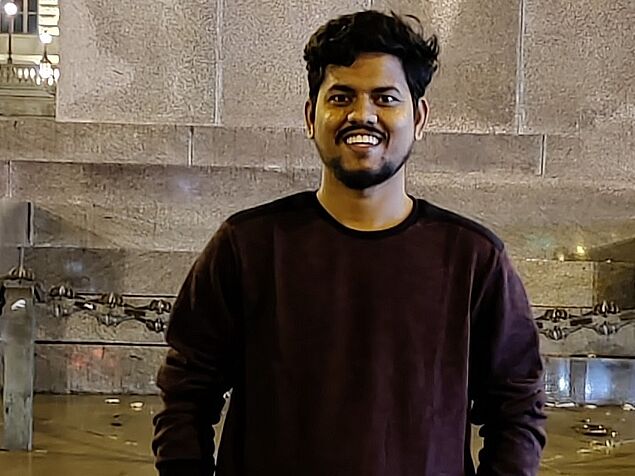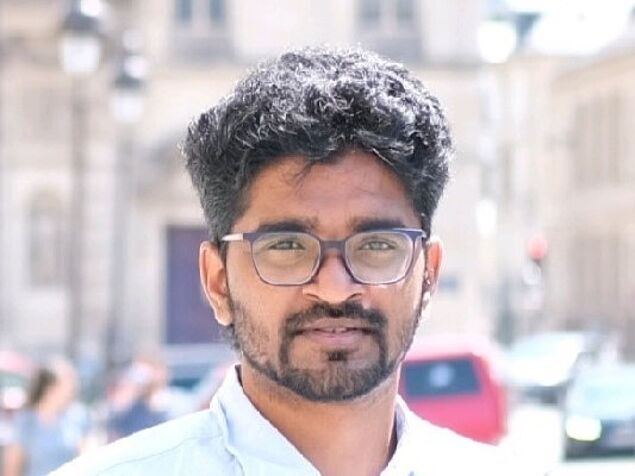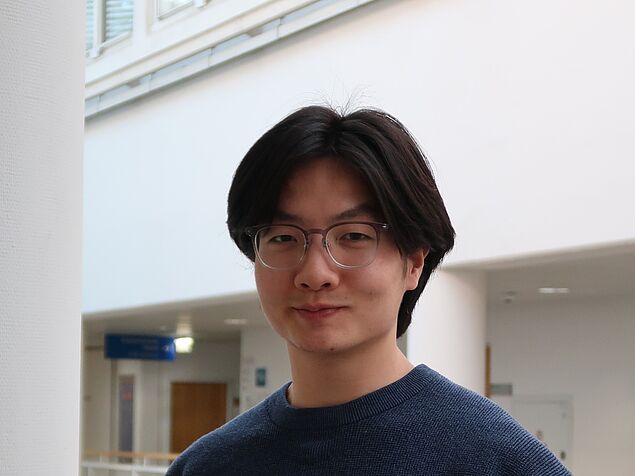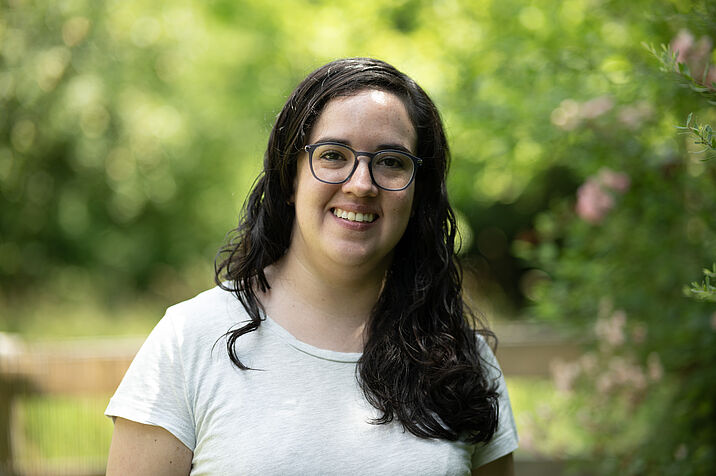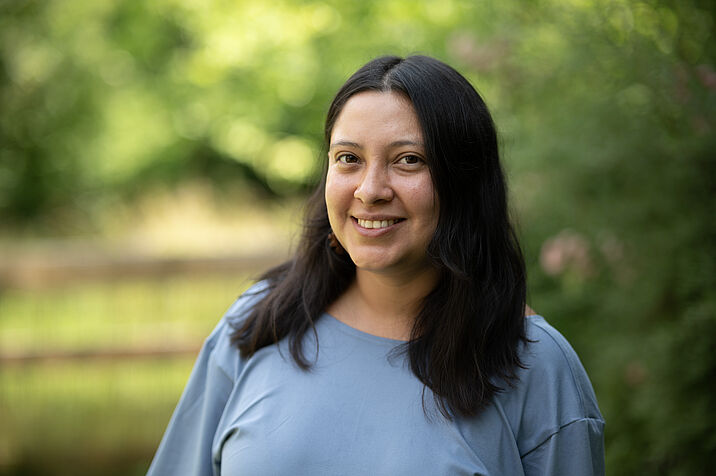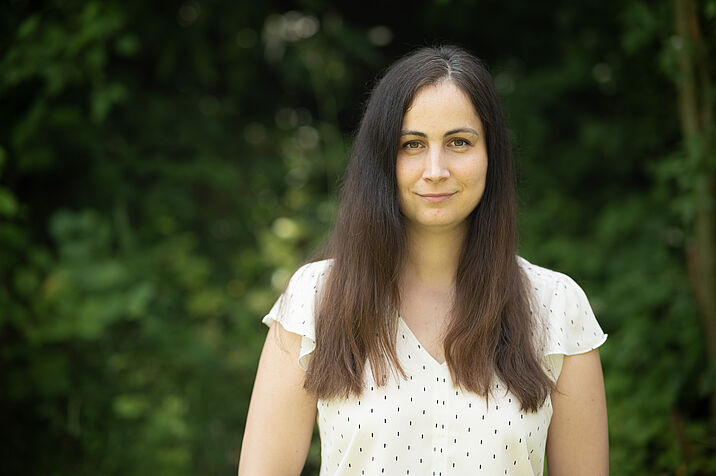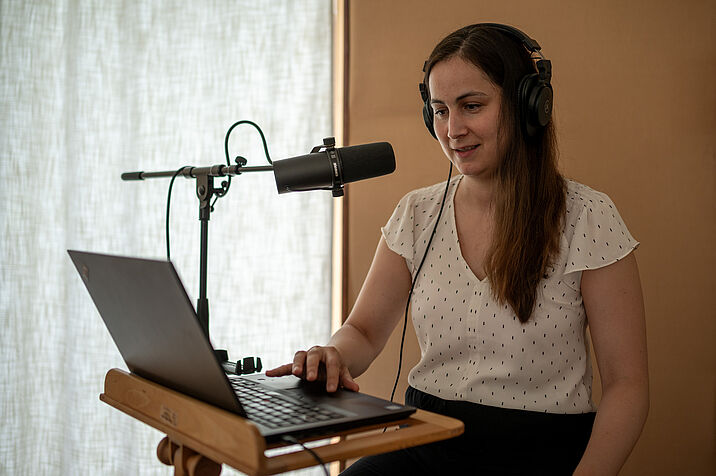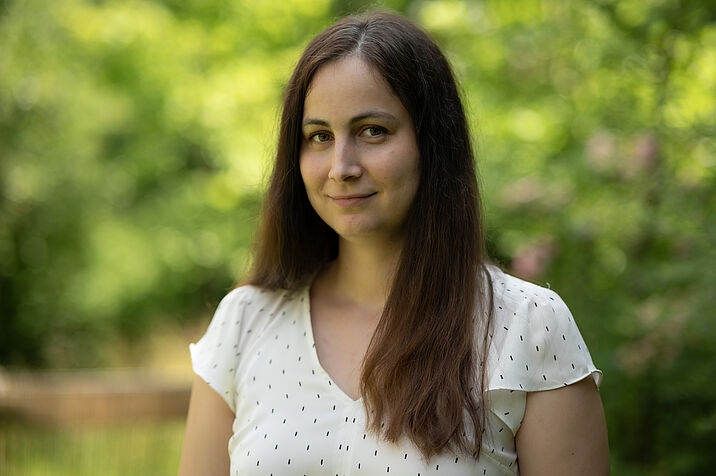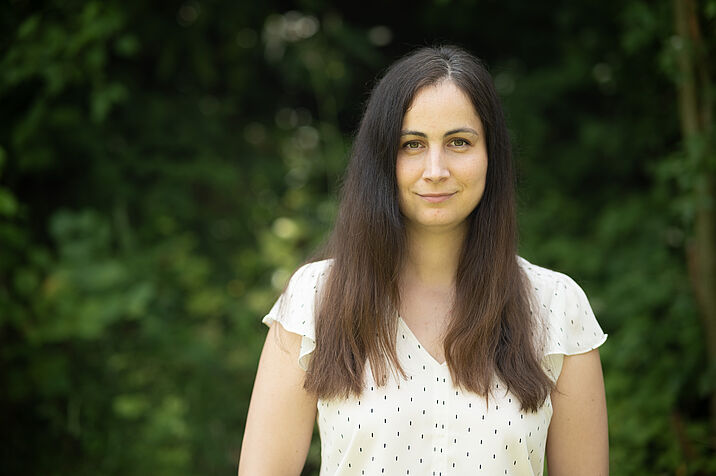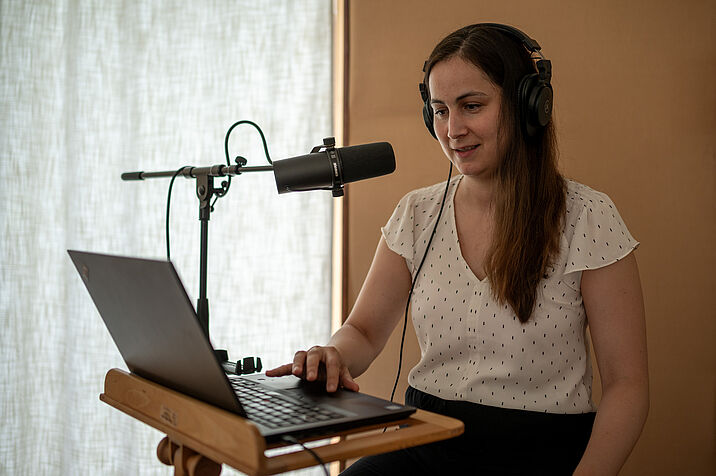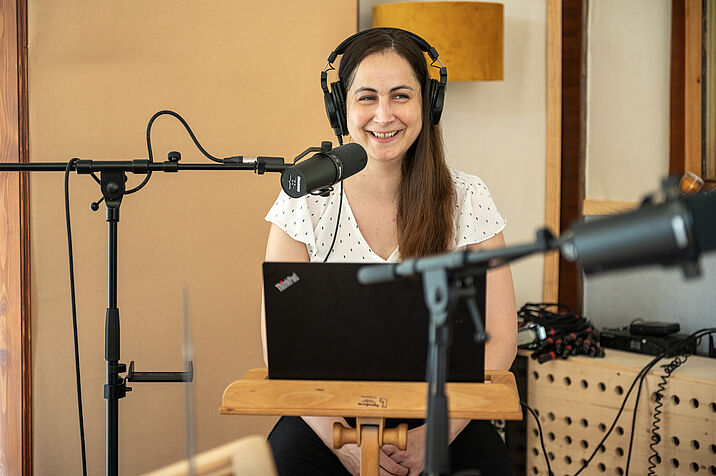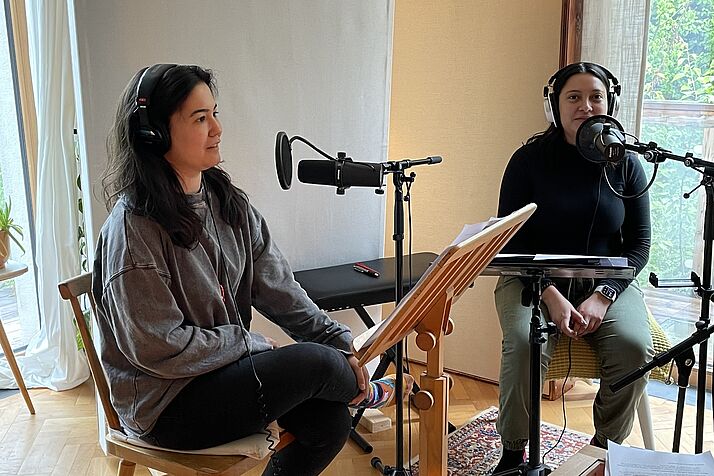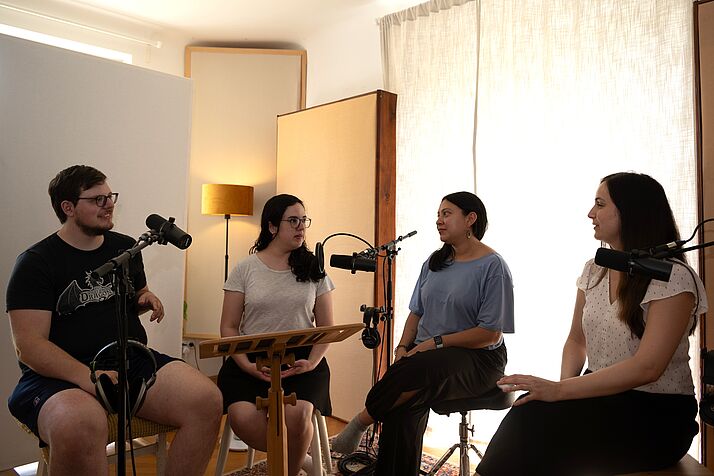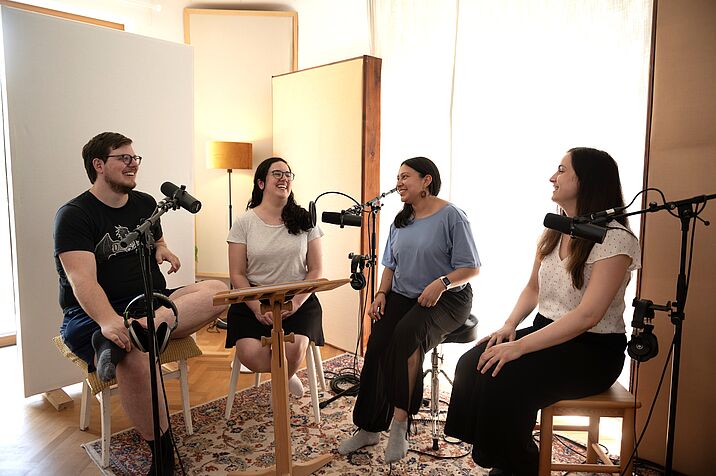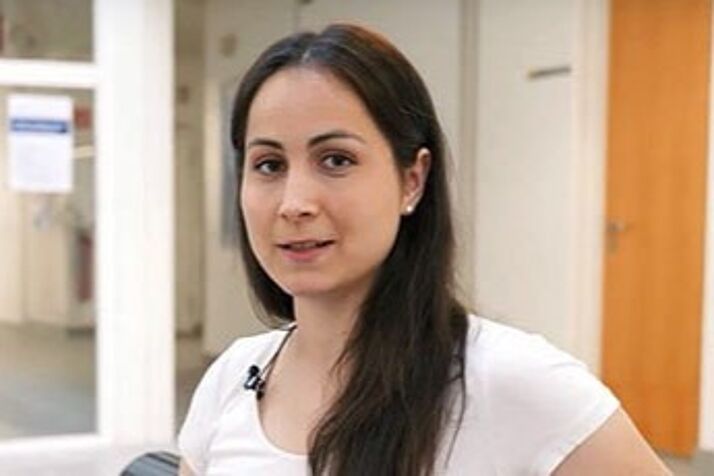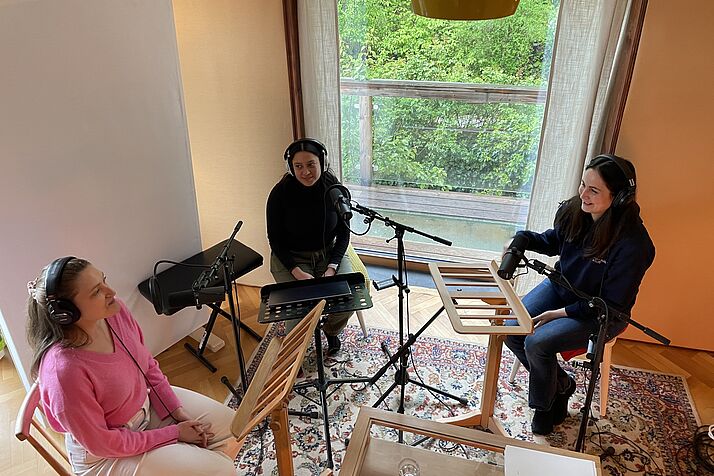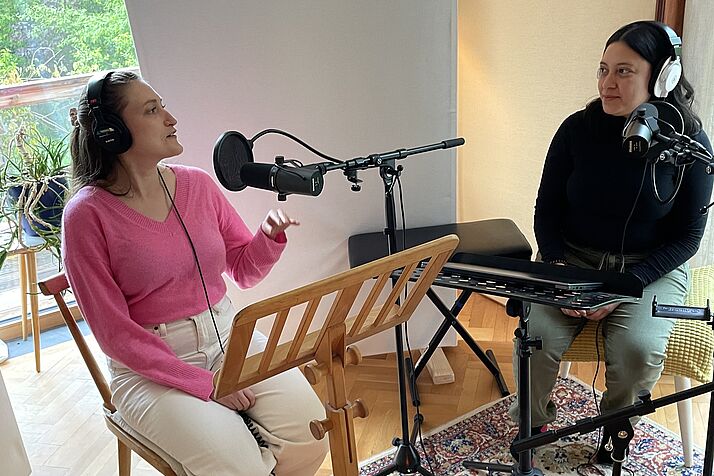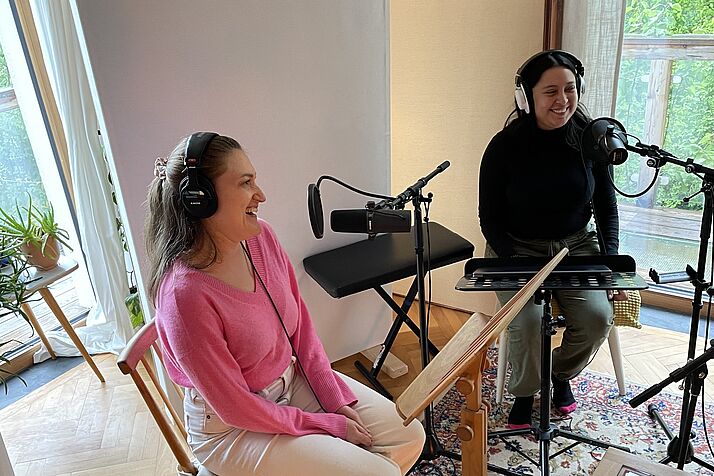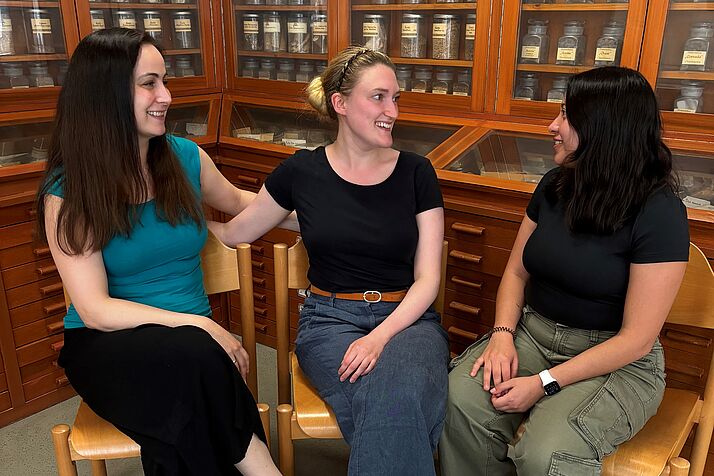
Episode 15: Behind the Experiments
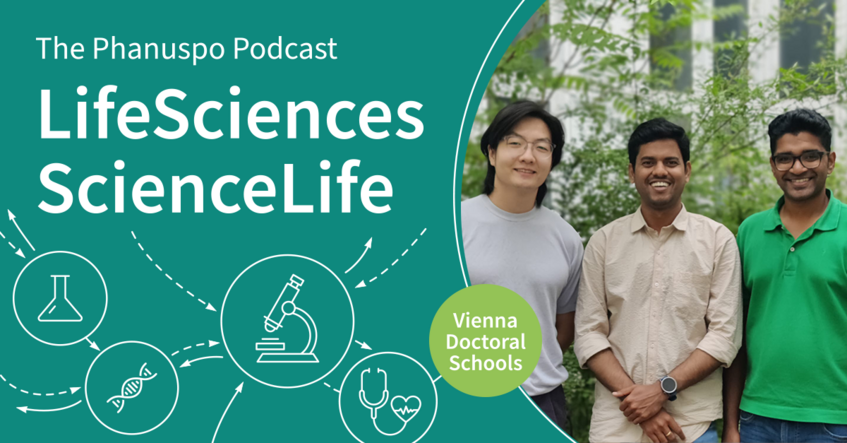
Podcast team: Hari Baskar Balasubramanian (PhD candidate) and Ranjith Kumar Ravi Kumar (postdoctoral researcher), both from the Department of Pharmaceutical Sciences, Anar Batzorig (PhD candidate), Department of Nutritional Sciences.
Recording and editing: Anar Batzorig (PhD candidate), Department of Nutritional Sciences.
Doing a PhD is often described as a journey - one filled with curiosity, persistence, and plenty of unexpected turns. In this episode, our podcast members Hari, Anar (Phd candidates), and Ranjith (postdoctoral researcher) open up about their personal PhD experiences: field of research, the motivation that sparked curiosity, managing different tasks and the small victories that kept them moving forward. You’ll hear their honest reflections and thoughtful conversations about what it really means to pursue PhD from their point of view. Whether you’re just starting your PhD, somewhere in the middle, or thinking about life after graduation, this episode offers a relatable experience to every early-career researcher.
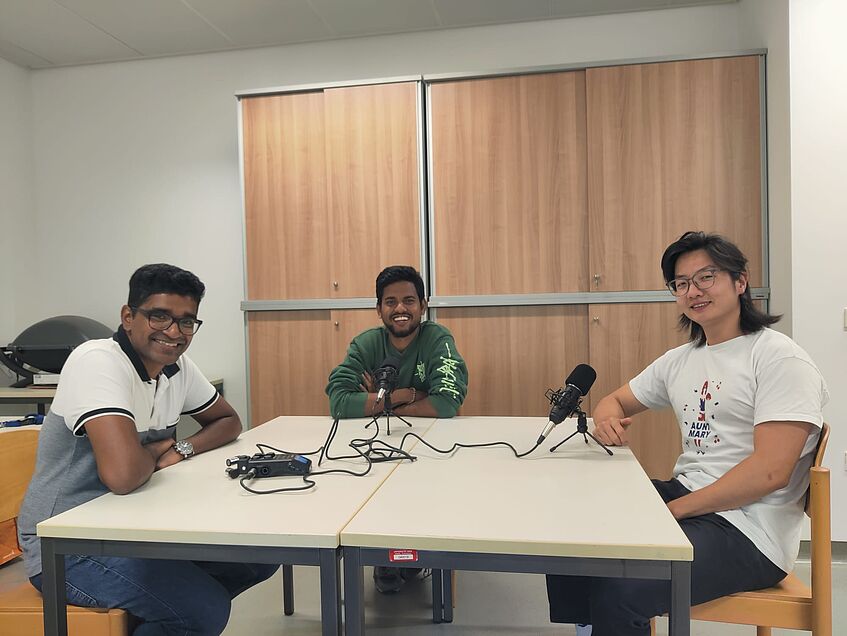
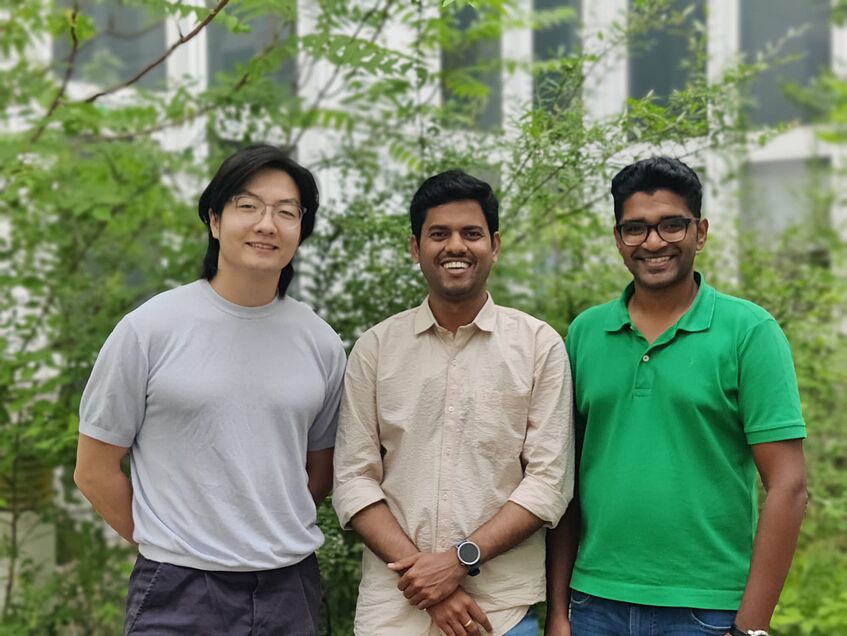
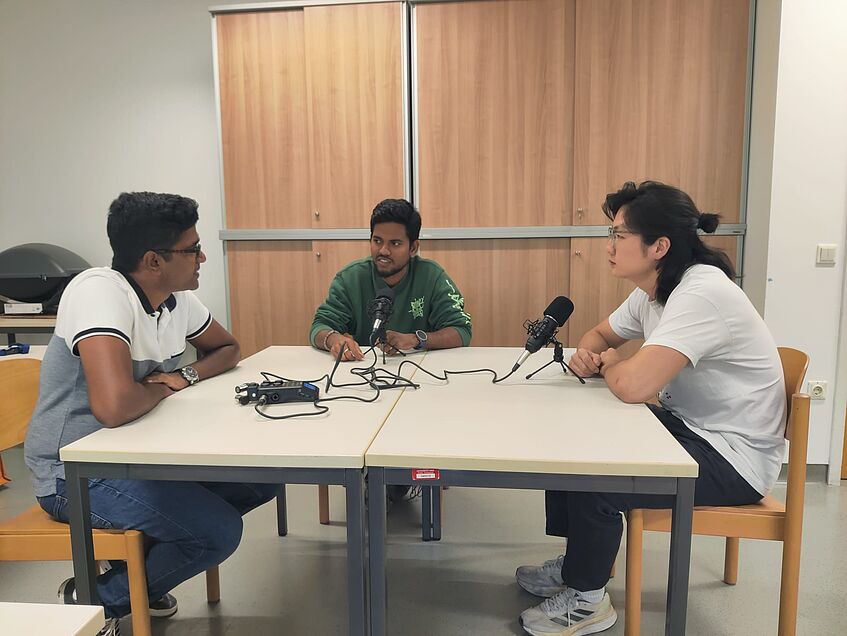
Episode 14: Proteomics - beyond the genome
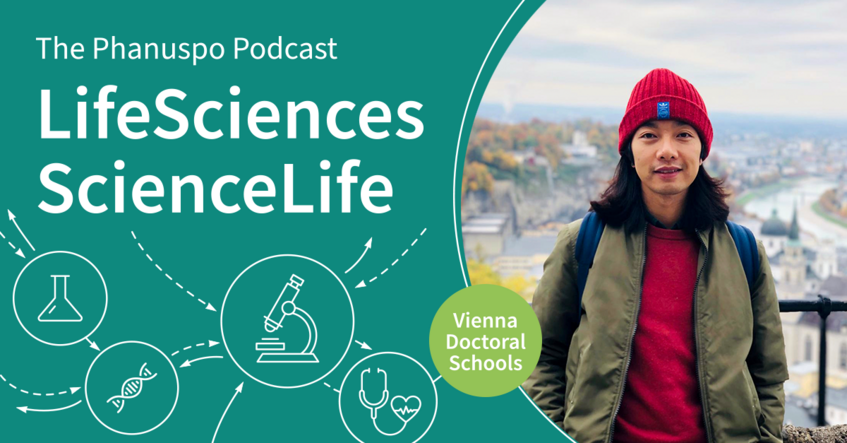
Guest: Feng Xian, postdoctoral researcher in the Division of Pharmacology and Toxicology at the University of Vienna.
Hosts: Hari Baskar Balasubramanian (PhD candidate) and Ranjith Kumar Ravi Kumar (postdoctoral researcher), both from the Department of Pharmaceutical Sciences.
Recording and editing: Anar Batzorig (PhD candidate), Department of Nutritional Sciences.
In this episode, Feng Xian, a postdoctoral researcher in the Division of Pharmacology and Toxicology at the University of Vienna, starts the conversation by providing an overview of the Human Genome Project and explaining why it is essential to look beyond the genome to gain a comprehensive understanding of biology. With a clear passion for proteomics, he discusses advanced tools used to study proteins, focusing on the power of mass spectrometry.
He highlights the latest developments in the field, including high-throughput techniques and the emerging role of single-cell proteomics in uncovering the complexity of systems such as the microbiome, as well as challenging samples like faeces and blood. He also illustrates the real-world impact of proteomics across multiple disciplines, including pharmaceutical and nutritional sciences, and shares everyday examples of how proteomic techniques can be used to profile food allergies.
If you are fascinated by recent advancements and technical innovations in metaproteomics, then don't miss this insightful conversation with Dr. Feng Xian, who has over a decade of expertise in the field.
Read more about Feng's work in his latest article in Nature Communications:
- Xian, F., Brenek, M., Krisp, C. et al. Ultra-sensitive metaproteomics redefines the dark metaproteome, uncovering host-microbiome interactions and drug targets in intestinal diseases. Nat Commun 16, 6644 (2025). https://doi.org/10.1038/s41467-025-61977-7
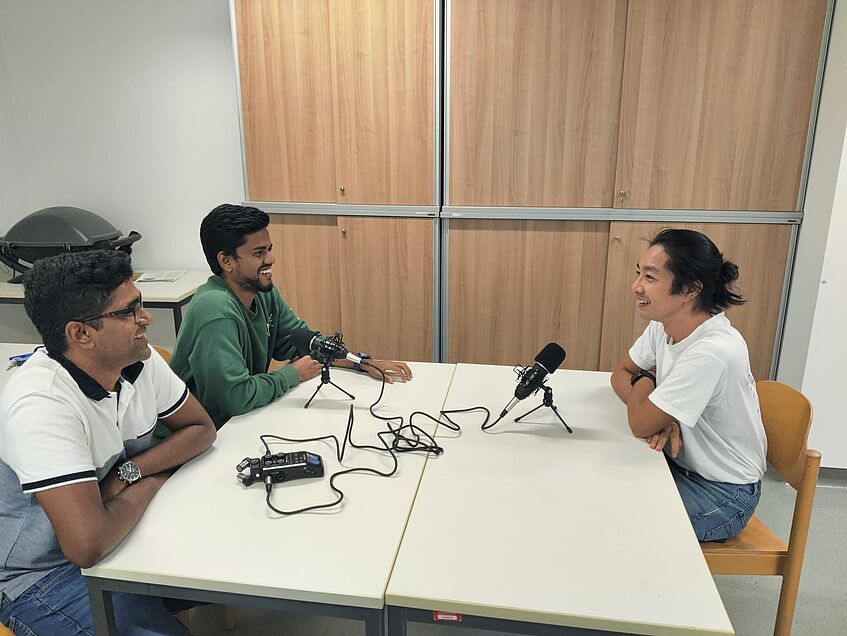
Ranjith, Hari and Feng

Guest: Dr. Feng Xian
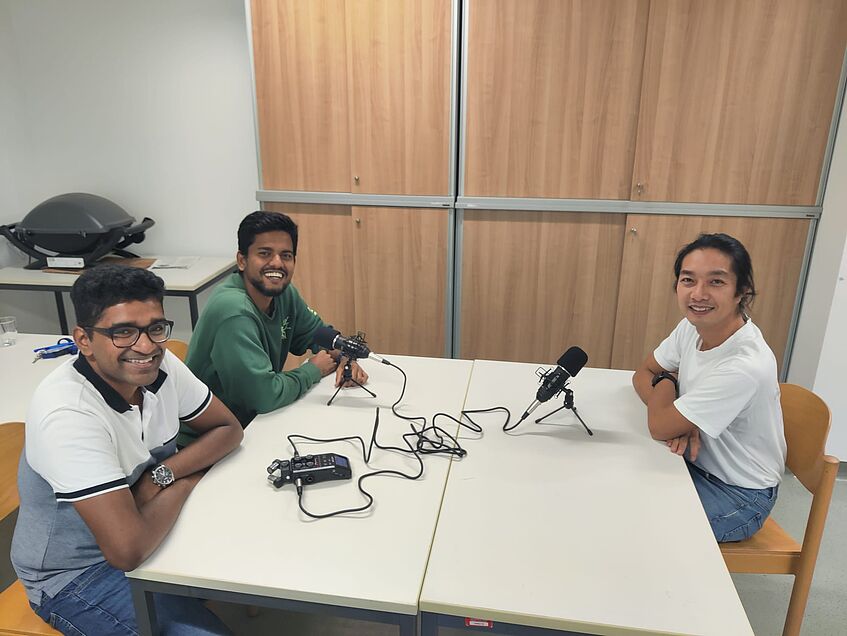
Ranjith, Hari and Feng
Episode 13: Musculoskeletal modelling
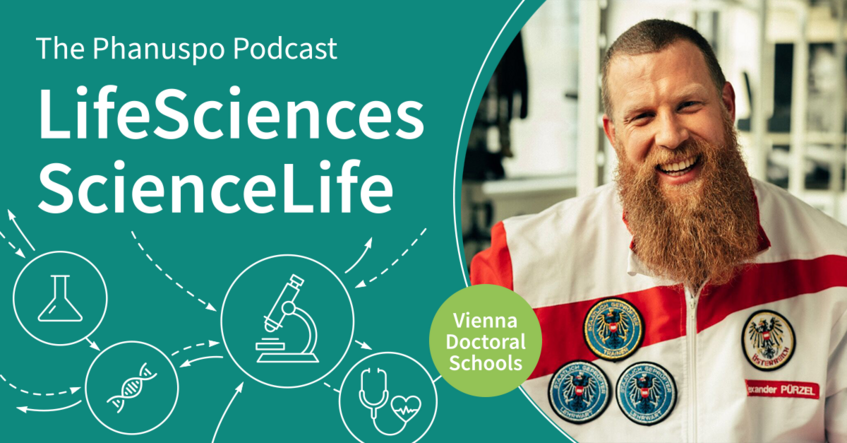
Guest: Alexander Pürzel , PhD candidate at the Department of Sport and Human Movement Science.
Hosts: Hari Baskar Balasubramanian (PhD candidate) and Ranjith Kumar Ravi Kumar (postdoctoral researcher), both from the Department of Pharmaceutical Sciences.
Recording and editing: Anar Batzorig (PhD candidate), Department of Nutritional Sciences.
This episode offers an engaging introduction to the future of sport science: musculoskeletal modelling. It’s where the labs and computers come together to shape how we understand, train and care for the human body. Musculoskeletal modelling digitally recreates human movement, offering insights into forces and mechanics that are nearly impossible to capture through direct testing.
In this conversation, Alexander explains how these models are built, what they can tell us, and why they matter. He discusses how researchers use data from a wide variety of cases, including artificial joint replacements, to train these models. He also addresses their limitations and the challenge of making them robust and reflective of real-life conditions.
We explore practical applications such as:
- how joint contact force profiles can inform rehabilitation protocols to minimise joint loads,
- how athletes and coaches can optimise load progression and exercise selection,
- and how insights from elite athletes may also apply to well-trained individuals or clinical populations aiming to build strength while preserving joint integrity.
The results show us that musculoskeletal modelling provides evidence-based tools that can guide safer rehabilitation, smarter and safer training and support long-term performance and musculoskeletal health.
Curious? Then dive straight into Alexander’s podcast!
If you are interested in the science behind Alexander's talk, then
- Read his publications, which are available at the Research Information System of the University of Vienna, and
- Visit his website alexanderpuerzel.com, or
- Read his recommended book on Biomechanics of Movement, or watch the educational videos on the Biomechanics of Movement YouTube Channel.

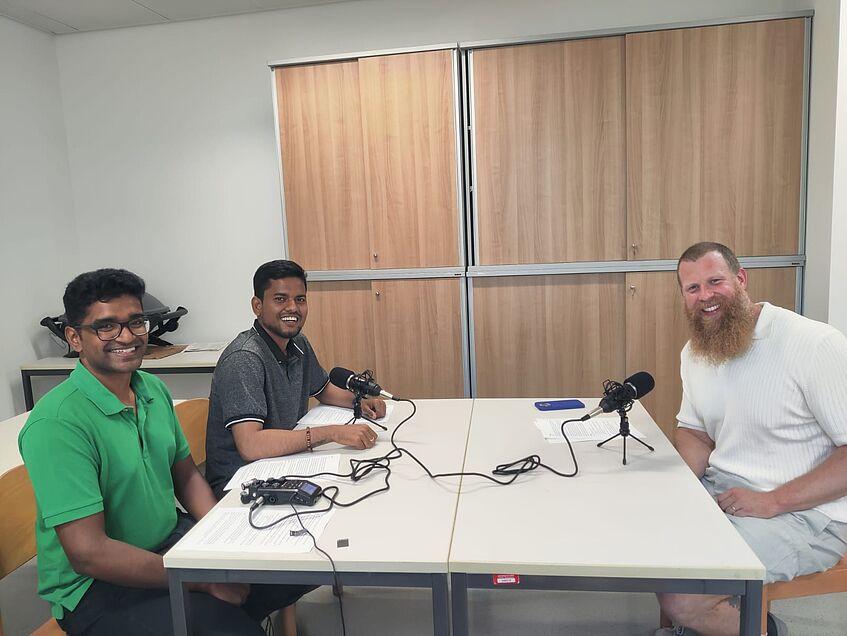
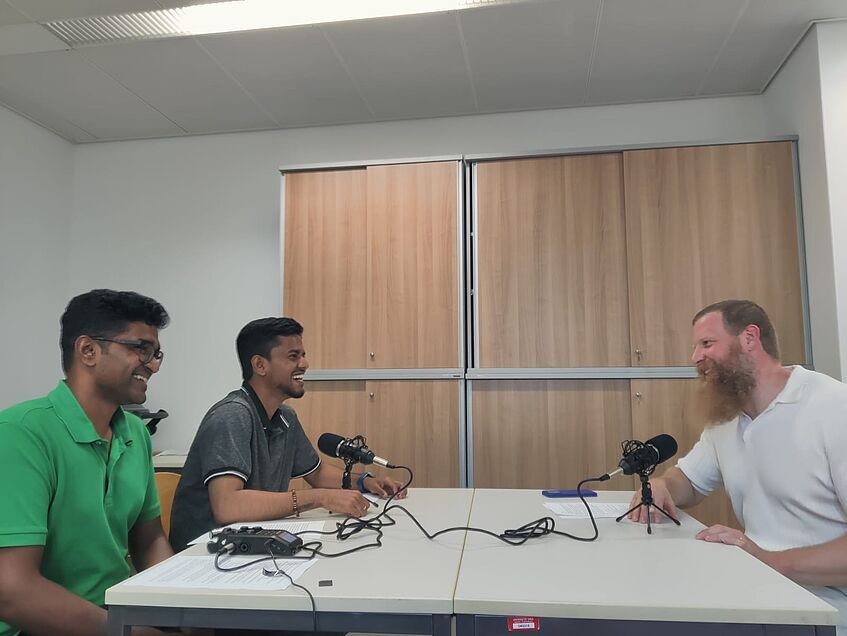
Episode 12: Impact of null results in a PhD
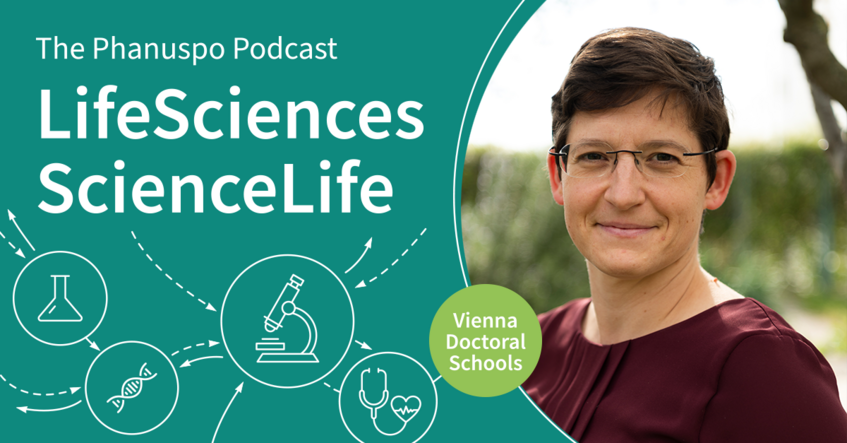
Guest: Marietta Zille, Assistant Professor in the Division of Pharmacology and Toxicology at the University of Vienna.
Hosts: Hari Balasubramanian (PhD candidate) and Ranjith Kumar Ravi Kumar (postdoctoral researcher), both from the Department of Pharmaceutical Sciences.
Recording and editing: Anar Batzorig (PhD candidate), Department of Nutritional Sciences.
Null results are often overlooked in academic publishing, yet they play a critical role in advancing science with honesty and integrity.
In this episode, we sit down with Marietta Zille, an Assistant Professor at the University of Vienna, to explore the impact of null findings during a PhD and how they can shape both research and researchers. Marietta shares her journey through the highs and lows of working with inconclusive data, which challenges the stigma often associated with "failed" experiments. We explore how embracing null results can foster scientific rigour, encourage transparency, and open unexpected career pathways.
Marietta offers thoughtful reflections and practical advice for PhD students and early-career researchers navigating uncertainty in their work. Whether you are in the middle of writing your thesis or mentoring someone, this episode sheds light on the often-unspoken value of what doesn't go as planned.
Useful links suggested by Marietta Zille
- Marietta's PhD supervisor, Ulrich Dirnagl, maintains a thought-provoking blog on topics related to transparency and rigour in science: dirnagl.com
- Learn more about the QUEST Center for Responsible Research, which promotes open science practices: QUEST Center
- The QUEST Center also awards efforts that highlight the importance of inconclusive or null results. Check out the Null and Replication Award: Null and Replication Award
- For those looking to publish their null or negative results, the Dutch funding agency ZonMw provides a helpful list of journals for publishing negative or neutral results: Download the PDF.
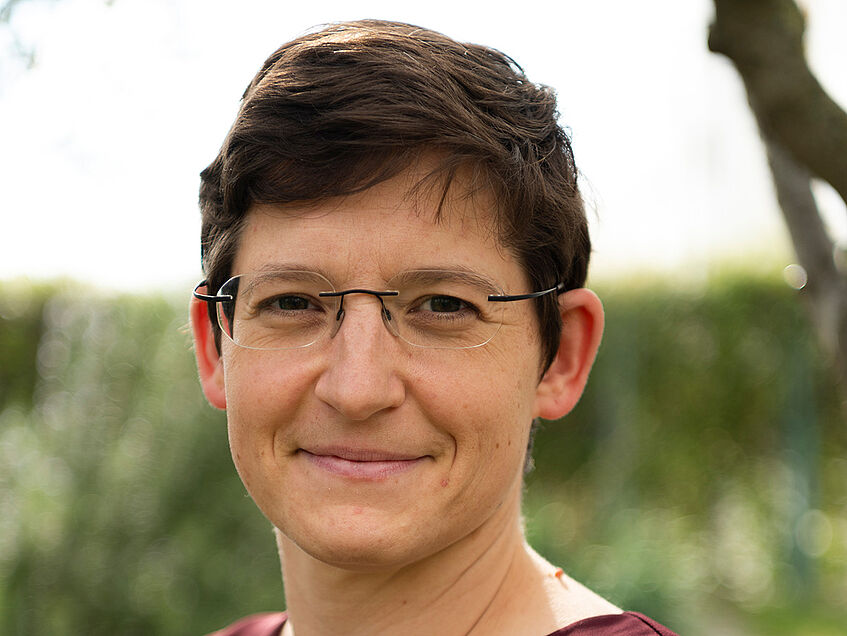
©Malena Brenek
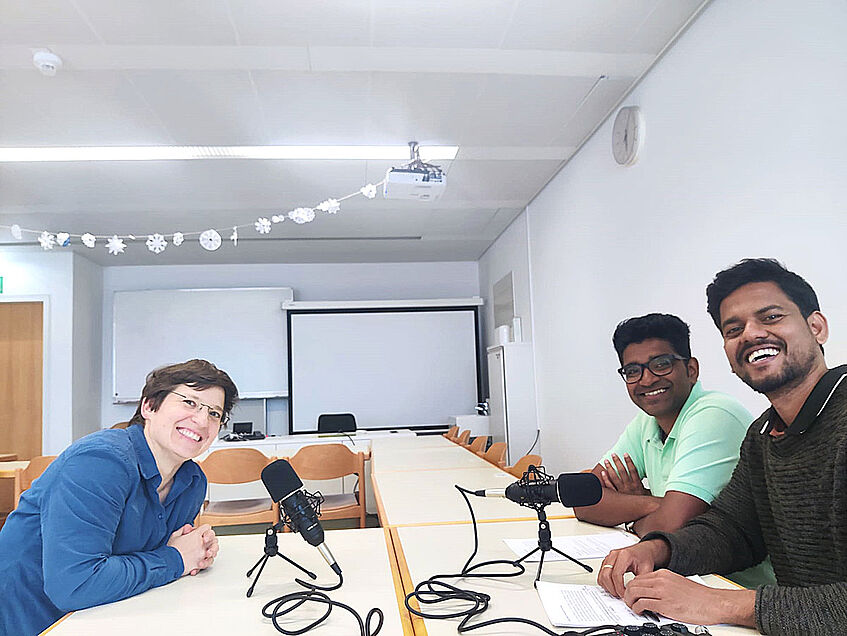
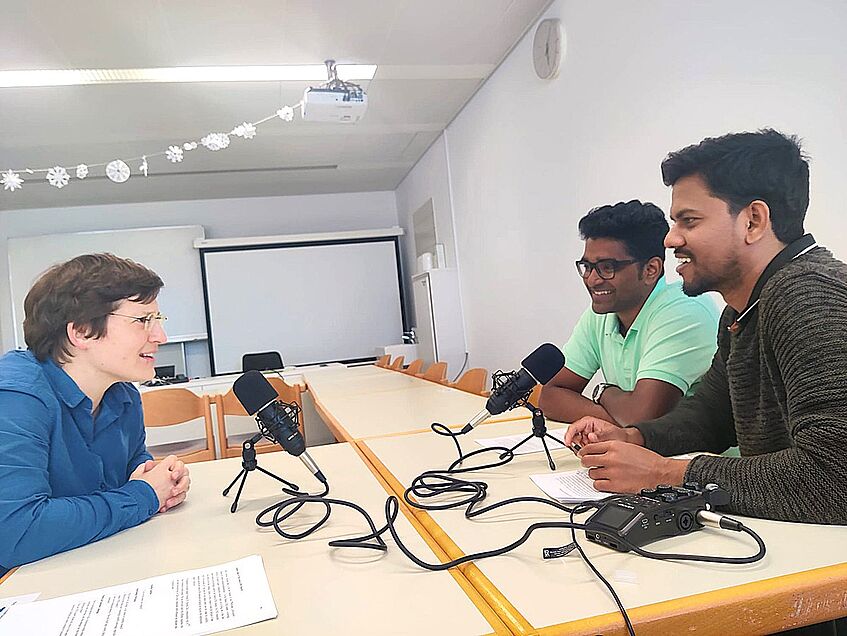
Episode 11: Career perspective after a PhD
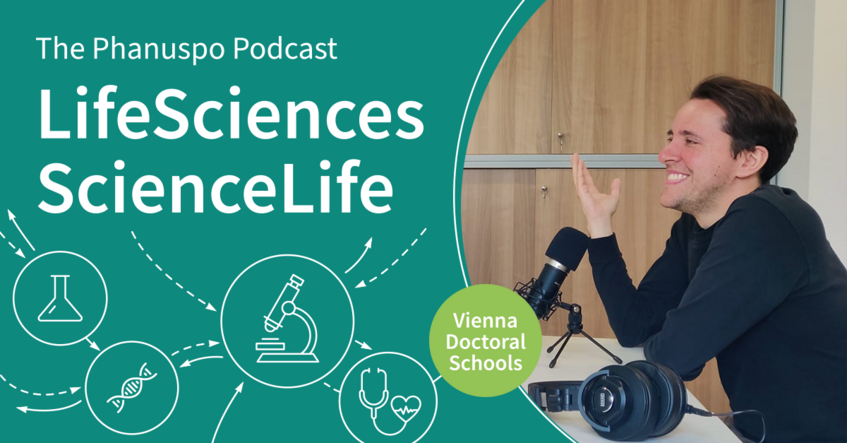
Guest: Daniel Cuervo-Zanatta, a postdoctoral researcher in the Department of Pharmaceutical Sciences at the University of Vienna.
Hosts: Hari Balasubramanian (PhD candidate) and Ranjith Kumar Ravi Kumar (postdoctoral researcher), both from the Department of Pharmaceutical Sciences.
Recording and editing: Anar Batzorig (PhD candidate), Department of Nutritional Sciences.
Making career choices can be exciting and challenging at the same time. It is often a self-realisation process that promises fulfilment and professional growth.
In this episode, we sit down with Daniel, who takes us on his inspiring journey after earning a PhD that embodies his passion for academic research and teaching. Having spent several years as a professor at Anahuac University in Mexico, he transitioned to a postdoctoral research position at the University of Vienna, bringing a unique perspective on navigating academic careers across borders. He offers practical advice for early-career researchers and PhD graduates considering their next steps, while weaving in personal stories that highlight resilience, growth, and the importance of keeping an open mind.
Whether you’re planning your own post-PhD career or simply curious about the real-world experiences of academics, this conversation is full of insights you won’t want to miss!
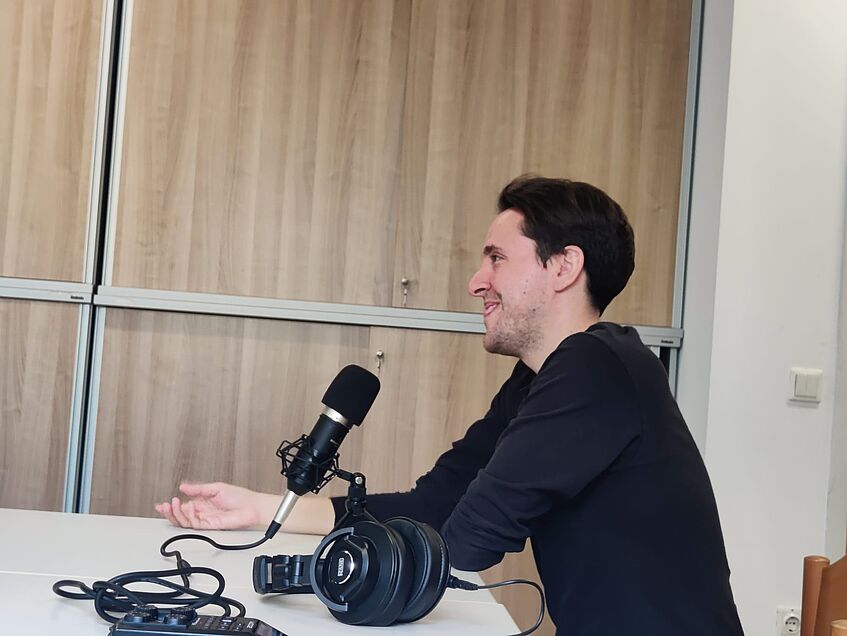
Guest: Daniel
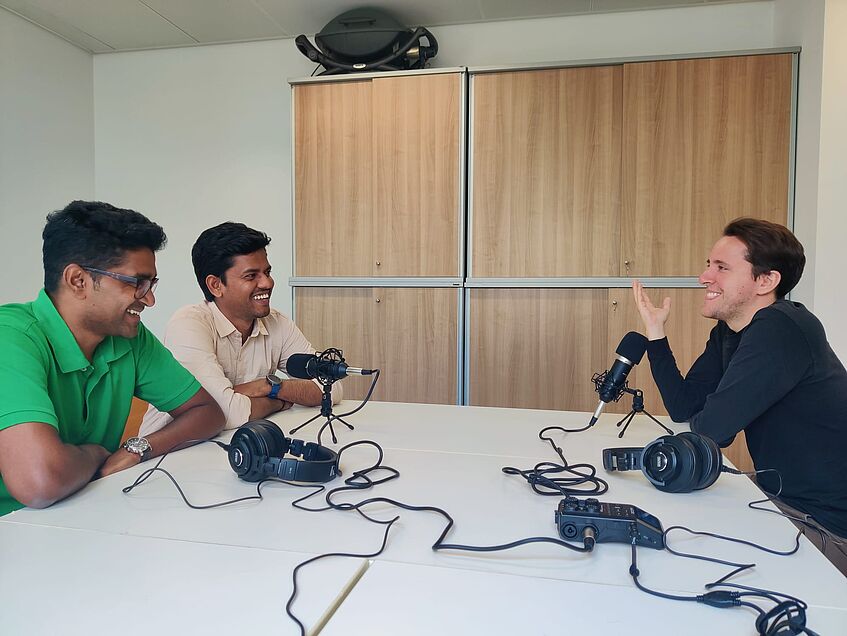
fltr: Ranjith, Hari and Daniel
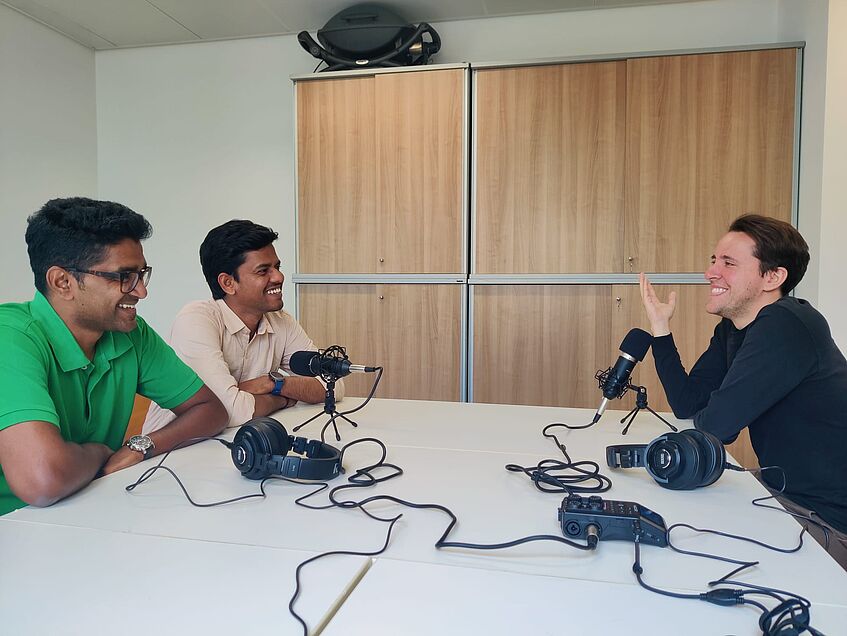
fltr: Ranjith, Hari and Daniel
Episode 10: Research mobility as a PhD student
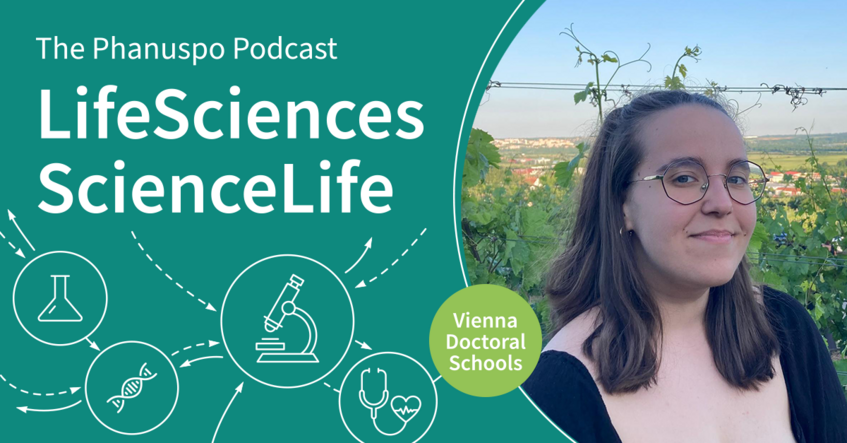
Guest: Bogi, a PhD student at the University of Pécs who has completed a 3-month mobility placement at Uni Wien.
Hosts: Hari Balasubramanian (PhD candidate) and Ranjith Kumar Ravi Kumar (postdoctoral researcher), both from the Department of Pharmaceutical Sciences.
Recording and editing: Anar Batzorig (PhD candidate), Department of Nutritional Sciences.
Step into the world of international research with Bogi, a PhD student at the University of Pécs, as she recounts her three-month mobility experience at the University of Vienna.
In this episode, Bogi offers a candid look at balancing productive research work with everyday life in a new country and environment. She shares how transitioning between institutions not only enhanced her professional skills and expanded her laboratory network, but also pushed her to leave her comfort zone, embrace new challenges and adapt to a different setting. Her journey is a powerful reminder that stepping away from the familiar can broaden both your academic network and your personal perspective.
Tune in for an insightful conversation that might inspire you to embark on your own research mobility experience.
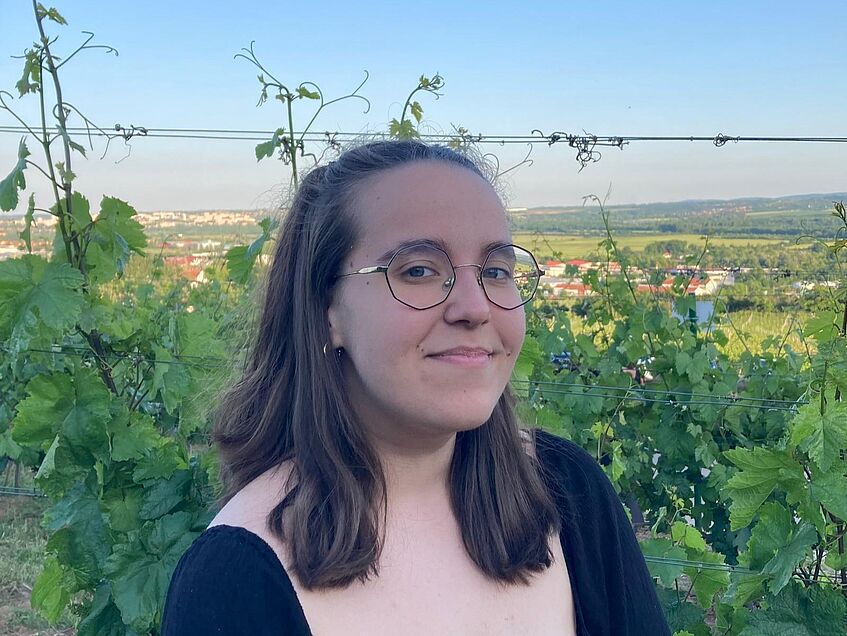
Guest: Bogi
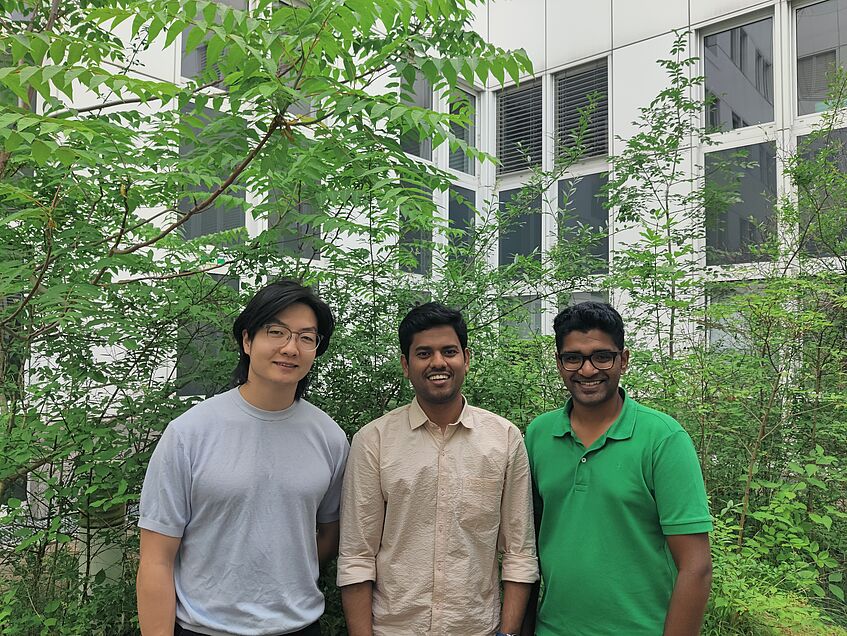
fltr: Anar, Hari and Ranjith
Episode 9: Immigration seen and unforeseen
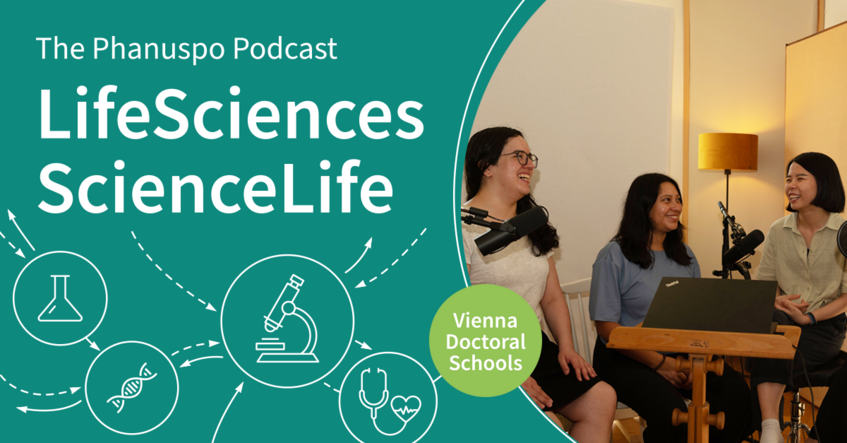
This episode was written by Thi Ngoc Lan Vu, Irem Duman, Andrea Cabrera and Shara Natalia Sosa Cabrera (Pharmaceutical Sciences), hosted by Agnes Draxler (Alumna and early-postdoc researcher at the Department of Nutritional Sciences), recorded and edited by Simon Schenk-Mair, and produced by Andrea Cabrera.
Are you thinking of moving to a distant country to do your doctorate, or have you already done so? Does it feel like it's all new and even though you've prepared so much, there's still a lot to do?
Then join PhD students/early career researchers in Pharmaceutical Sciences - Thi Ngoc Lan Vu, Andrea Cabrera and Shara Natalia Sosa Cabrera - as they discuss some of the challenges they faced as international students and share their best tips on how to overcome them. They talk about the difficulties they foresaw, and some they did not, before moving from far away countries to Vienna, Austria. They share their insights, successes, failures and some useful tips for other international students who are planning to study abroad or who are already doing so. Listen to them to hear how they adapted to these challenges, both seen and unforeseen!
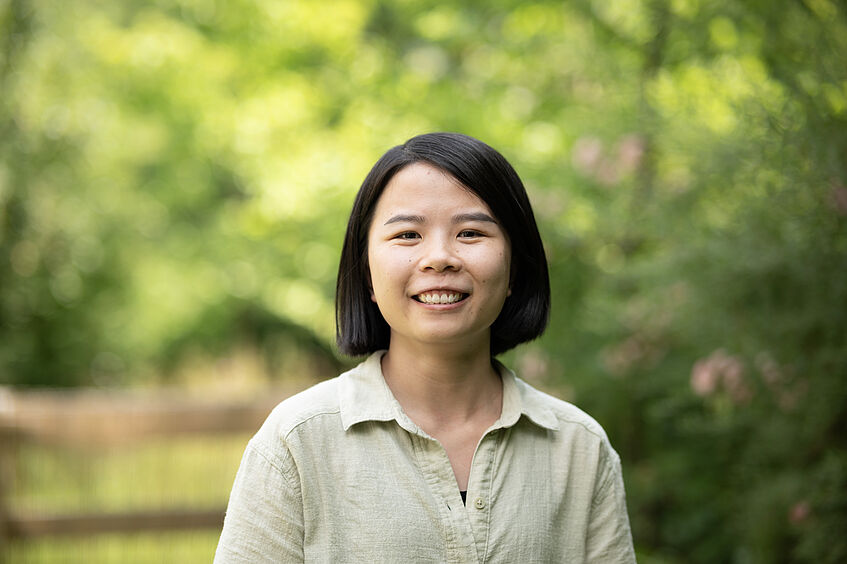
Thi Ngoc Lan Vu
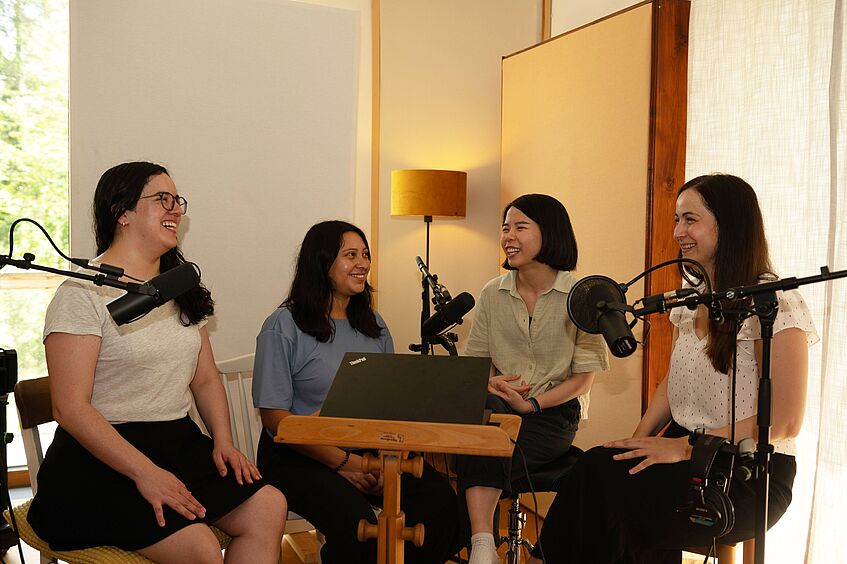
fltr: Andrea, Shara, Lan, Agnes
Episode 8: Healthy ageing
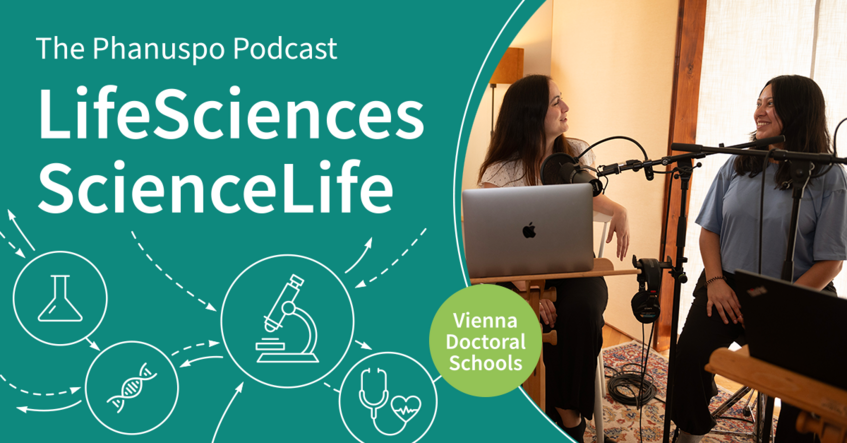
This episode was written and hosted by Agnes Draxler (Alumna and early-postdoc researcher at the Department of Nutritional Sciences), Shara Natalia Sosa Cabrera (PhD student in Pharmaceutical Sciences), recorded and edited by Simon Schenk-Mair, and produced by Andrea Cabrera (PhD student in Pharmaceutical Sciences).
Are you curious about how ageing works at a molecular level? Do you want to know how our bodies defend themselves against stress?
Then tune in to this episode, where we interviewed our regular hosts. Agnes, a freshly graduated PhD from the Department of Nutritional Sciences, discussed the importance of vitamin D and protein intake and the effect they have on our bodies as we age. Shara, a PhD candidate from the Division of Pharmacognosy, explained how the protein NRF2 detoxifies our bodies and keeps them healthy through time. Agnes and Shara also provided some suggestions on how to keep our bodies in good shape and healthy regardless of our age.
Finally, they shared their insights on how conference attendance has impacted their careers and how to make the most out of it.
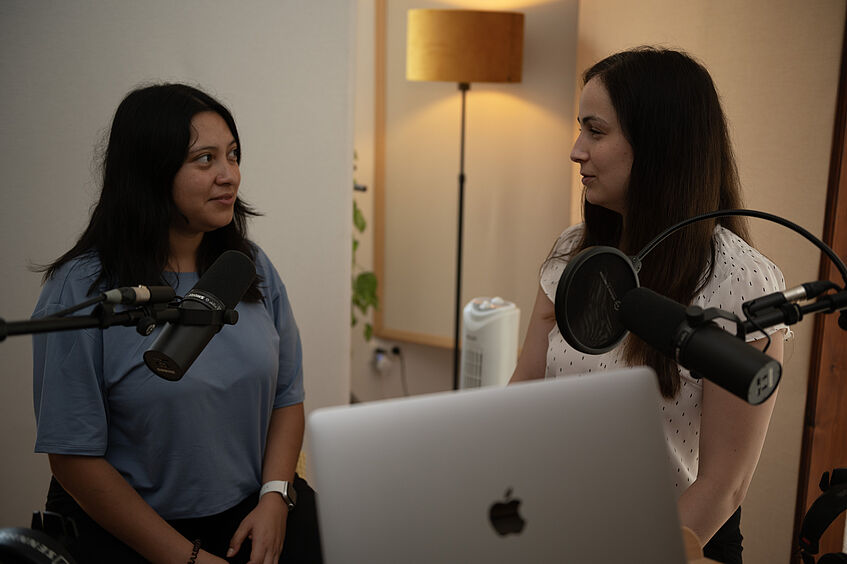
fltr: Shara and Agnes
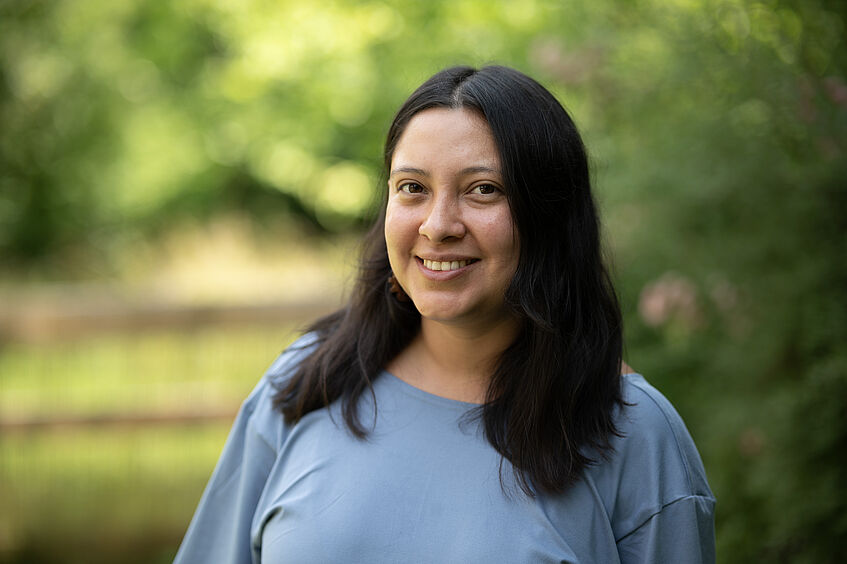
Shara Sosa Cabrera
Episode 7: Academia vs. industry: a Marie Skłodowska-Curie fellow perspective
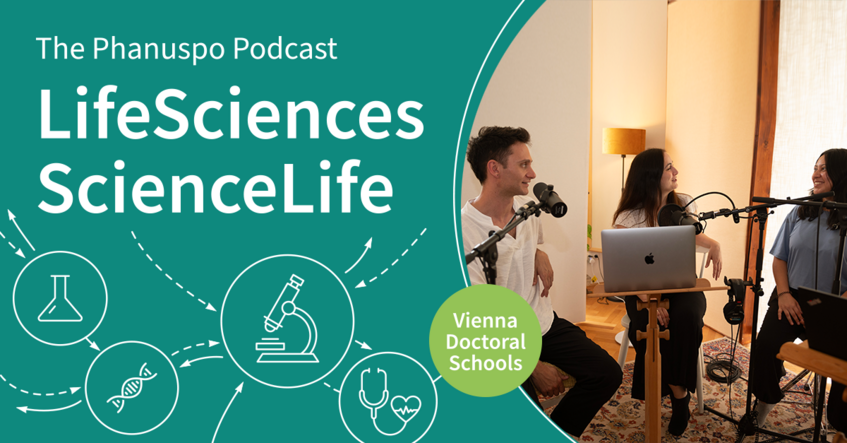
This episode was written by Vincenzo Palmacci (PhD student in Pharmaceutical Sciences), hosted by Agnes Draxler (Alumna and early-postdoc research at the Department of Nutritional Sciences) and Shara Natalia Sosa Cabrera (PhD student in Pharmaceutical Sciences), edited by Simon Schenk-Mair, and produced by Andrea Cabrera (PhD student in Pharmaceutical Sciences).
Have you ever wondered what you want to do after finishing your PhD? Are you having a hard time choosing between industry and academia because you still need more information to make up your mind? Then this episode is made for you!
We chatted with Vincenzo, a Marie Skłodowska-Curie PhD fellow, about his research journey through academia and industry during his doctoral studies. He shared insights into the differences in working culture between countries and how research is conducted in both sectors. Vincenzo also reflected on transitioning back to academia, managing frequent moves, and the collaborative nature of industry versus the competitive environment of academia. He offered some truly valuable lessons from his experiences, so tune in to hear them all!
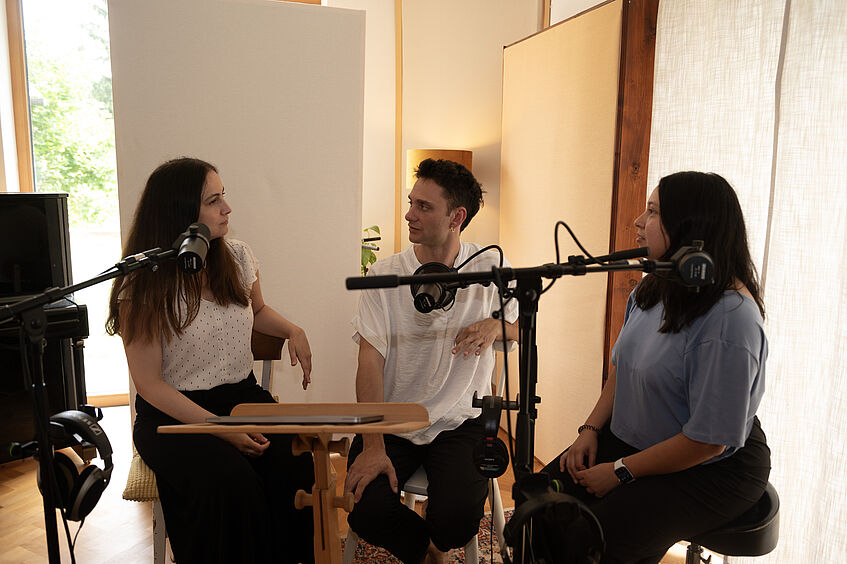
fltr: Agnes, Vincenzo and Shara
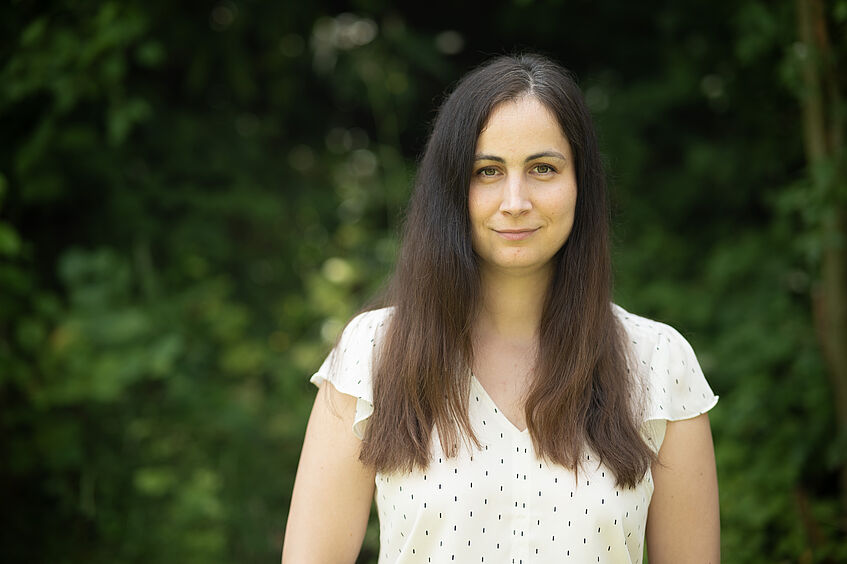
Agnes Draxler
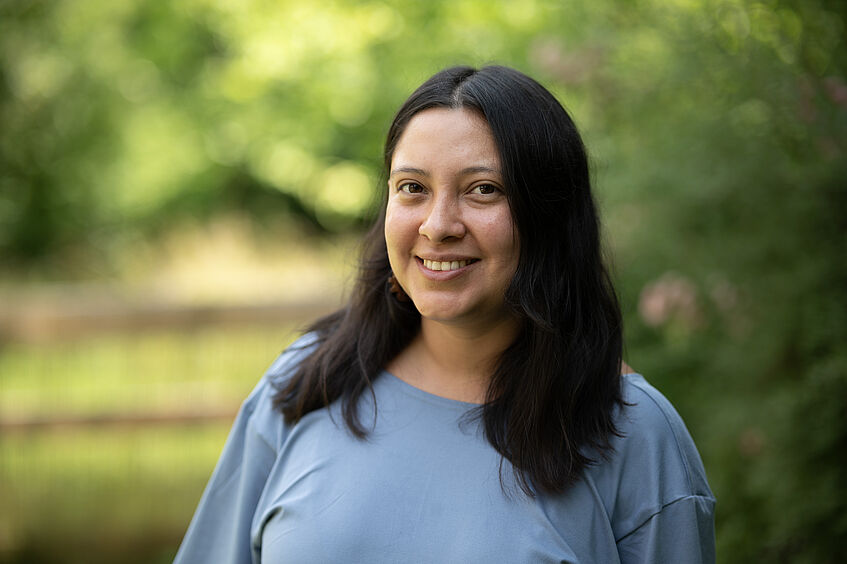
Shara Sosa Cabrera
Episode 6: PhD afterlife
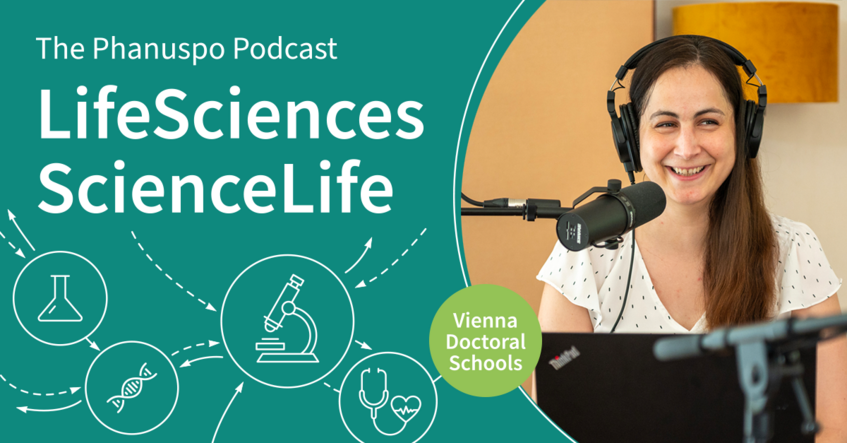
This episode was written by Agnes Draxler (Alumna and early-postdoc researcher at the Department of Nutritional Sciences), Shara Natalia Sosa Cabrera (PhD student in Pharmaceutical Sciences), recorded and edited by Simon Schenk-Mair, and produced by Andrea Cabrera (PhD student in Pharmaceutical Sciences).
Are you wondering what your life will look like once you’ve finished your PhD? What opportunities await you out there? When should you start preparing for the next steps in your life?
In this (not) spooky episode, Agnes Draxler, an Alumna and early postdoctoral researcher at the Department of Nutritional Sciences, switched from host to guest to discuss with us what life is like after finishing a PhD. We talked about everything from job opportunities and salaries, when to start looking and applying for positions, to how to choose your next research project. Is life after a PhD really that scary? Tune in to find out!
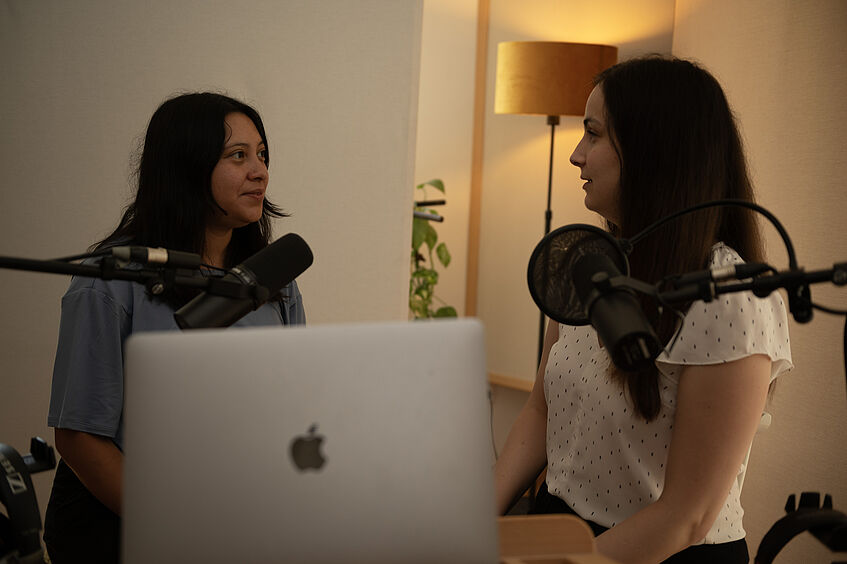
Shara and Agnes
Episode 5: Plant-based diets' impact on health
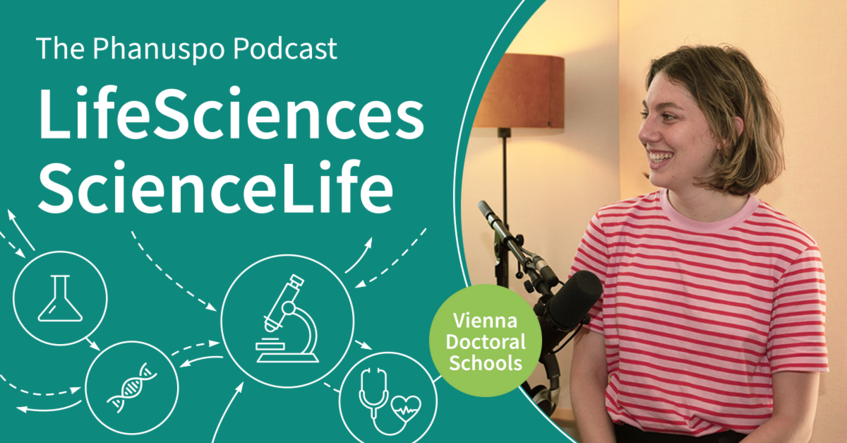
This episode was written by Catharina Candussi (PhD student in Nutritional Sciences), hosted by Agnes Draxler (Alumna and early-postdoc researcher at the Department of Nutritional Sciences) and Shara Natalia Sosa Cabrera (PhD student in Pharmaceutical Sciences), recorded and edited by Simon Schenk-Mair, and produced by Andrea Cabrera (PhD student in Pharmaceutical Sciences).
In this episode, we talk with Catharina Candussi, a PhD student in Public Health Nutrition, about her research on plant-based diets and their impact on health. With 5% of Europeans identifying as vegetarians and 3% as vegans, this trend is growing for reasons ranging from ethics to health benefits.
Catharina explores how plant-based diets can reduce the risk of chronic diseases such as type 2 diabetes and heart disease. She also discusses the COPLANT (COhort on PLANT-based diets) study, the largest study on plant-based nutrition in the German-speaking world to date, in which the University of Vienna is one of the 9 project partners. Additionally, Catharina shared with us how she deals with stress during her PhD.
Tune in to learn how plant-based diets can benefit both your personal health and the environment!
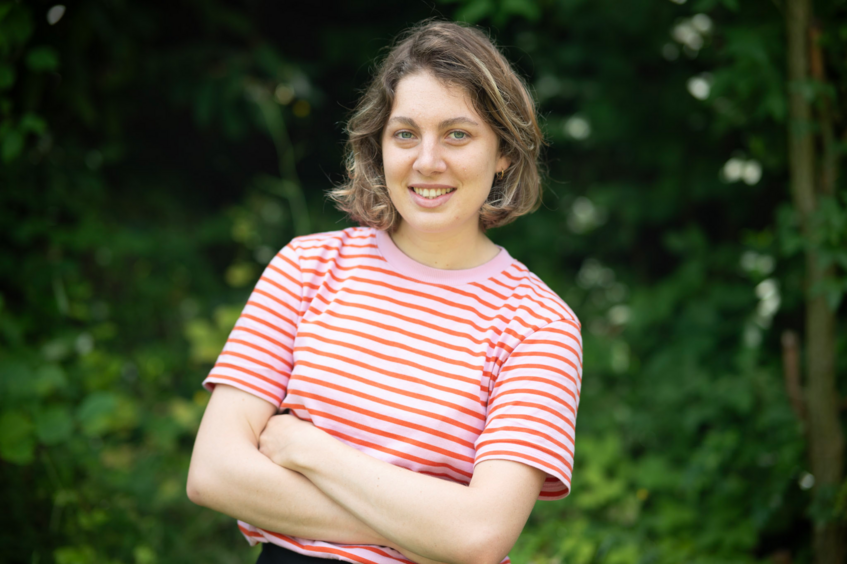
Catharina Candussi
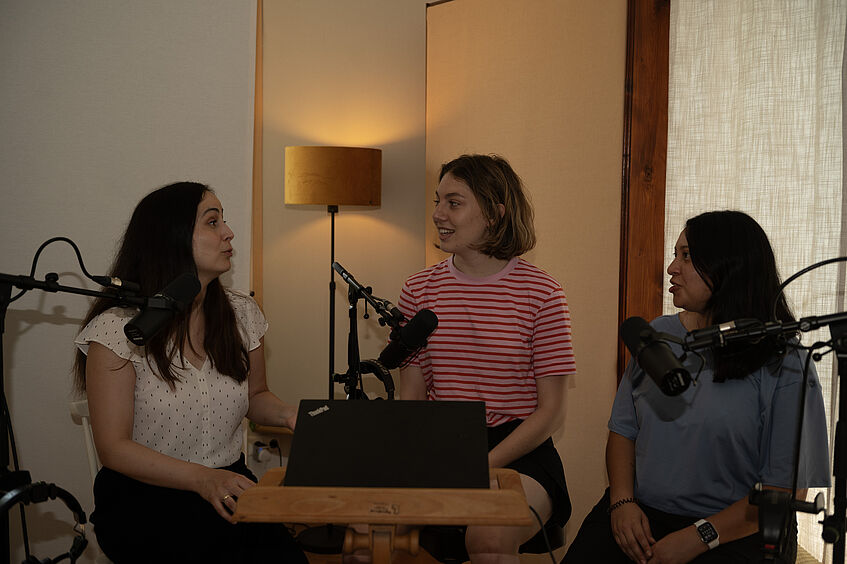
fltr: Agnes, Catharina and Shara
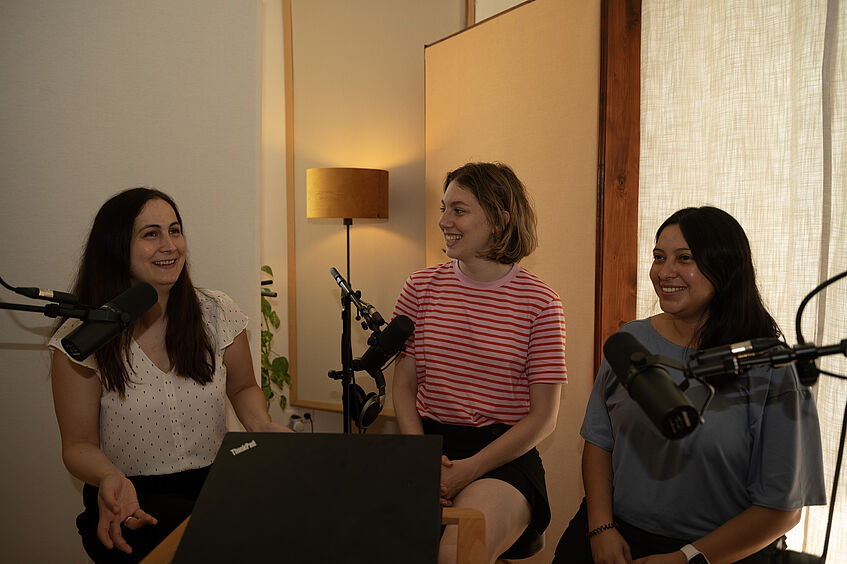
fltr: Agnes, Catharina and Shara
Episode 4: Building bridges through bioengineering

This episode was written by Irem Duman (PhD student in Pharmaceutical Sciences), hosted by Agnes Draxler (Alumna and early-postdoc researcher at the Department of Nutritional Sciences) and Shara Natalia Sosa Cabrera (PhD student in Pharmaceutical Sciences), edited by Simon Schenk-Mair, and produced by Andrea Cabrera (PhD student in Pharmaceutical Sciences).
Don't miss this fascinating discussion with Irem Duman, a PhD student in Pharmaceutical Sciences at the University of Vienna, to find out how cutting-edge technology is is revolutionising drug development and cancer treatment strategies. She sheds light on how researchers are pushing the boundaries of cancer research to discover better cancer treatments, and how dynamic 3D cell culture systems are reshaping our understanding of cancer cell behaviour and treatment response. Irem also shares her strategies for managing her busy research schedule and staying motivated.
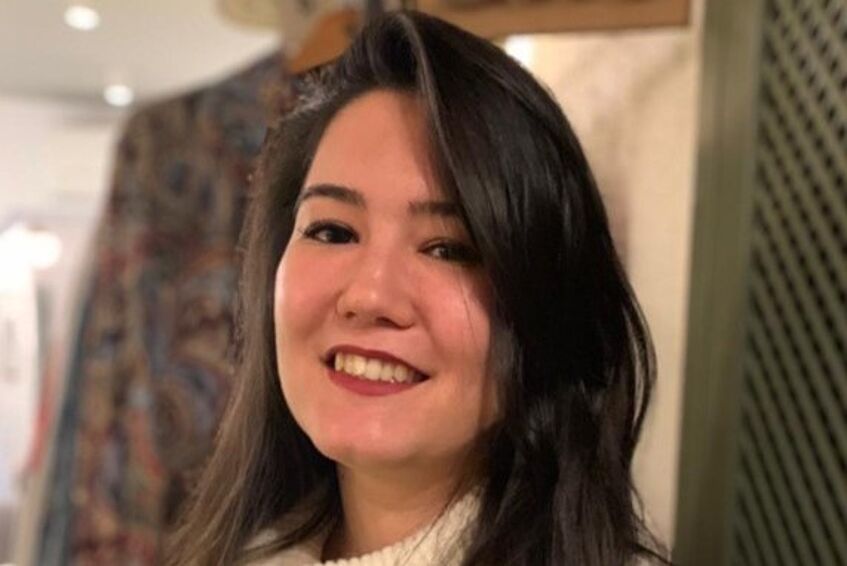
Irem Duman
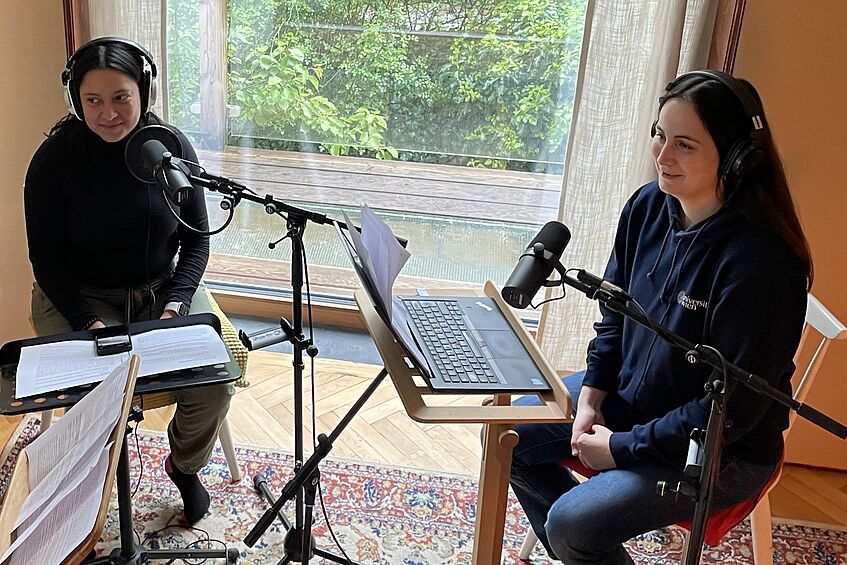
Hosts: Shara and Agnes
Episode 3: Drug development, AI and saying no
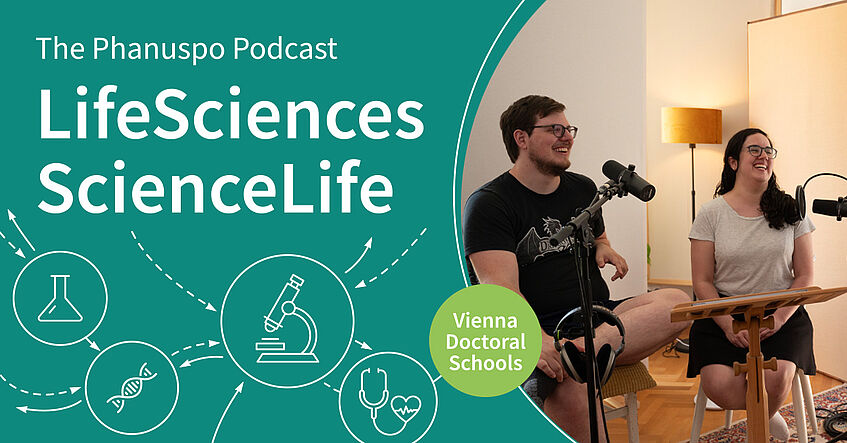
This episode was written by Christian Fellinger and Andrea Cabrera (both PhD student in Pharmaceutical Sciences), hosted by Agnes Draxler (Alumna and early-postdoc researcher at the Department of Nutritional Sciences) and Shara Natalia Sosa Cabrera (PhD student in Pharmaceutical Sciences), edited by Simon Schenk-Mair, and produced by Andrea Cabrera (PhD student in Pharmaceutical Sciences).
In this episode, Christian Fellinger and Andrea Cabrera, both PhD students in Pharmaceutical Chemistry in the Department of Pharmaceutical Sciences, join us to discuss how the whole drug development process works. They dive into the drug design part of the process and explain how current research is seeking to make it more efficient using different tools, including AI. They also give us some insights and tips on how to balance work and personal life. Tune in to hear how they are working together to improve the drug design process while keeping themselves healthy and motivated.
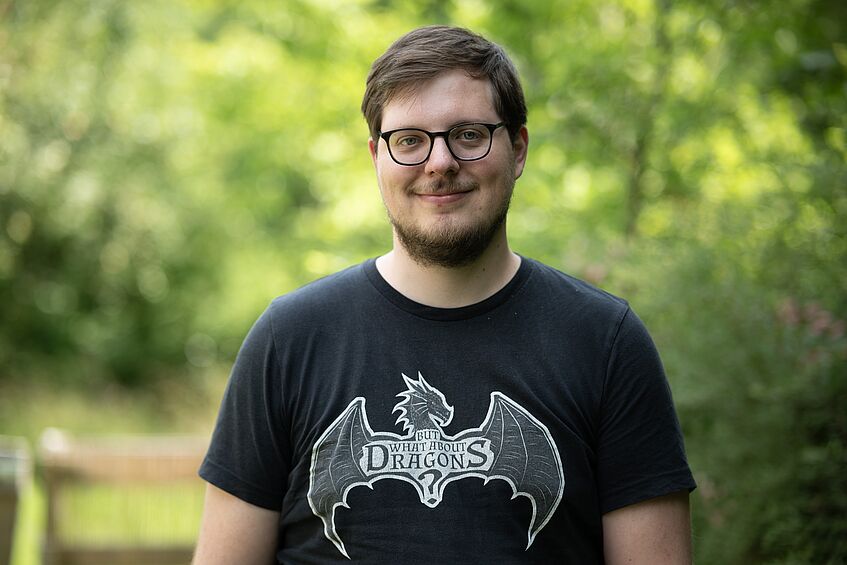
Christian Fellinger
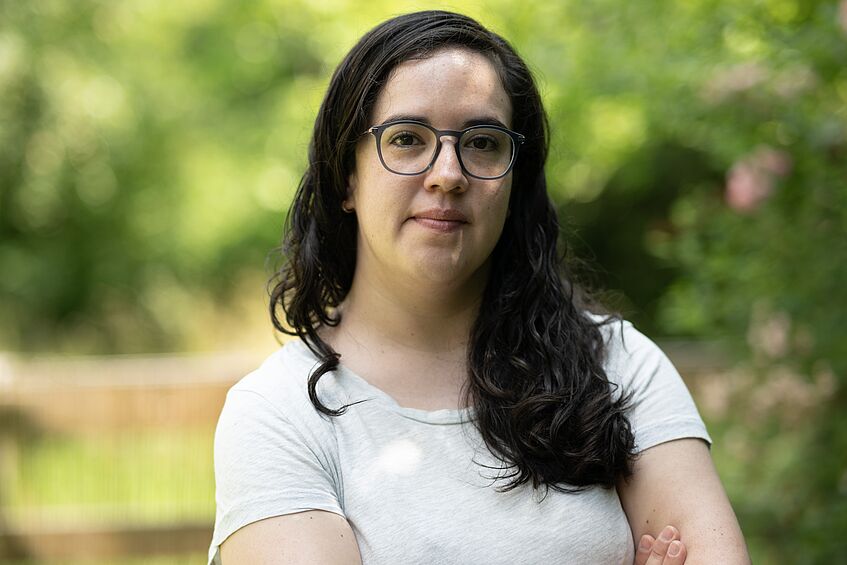
Andrea Cabrera
Episode 2: Long covid and exercise
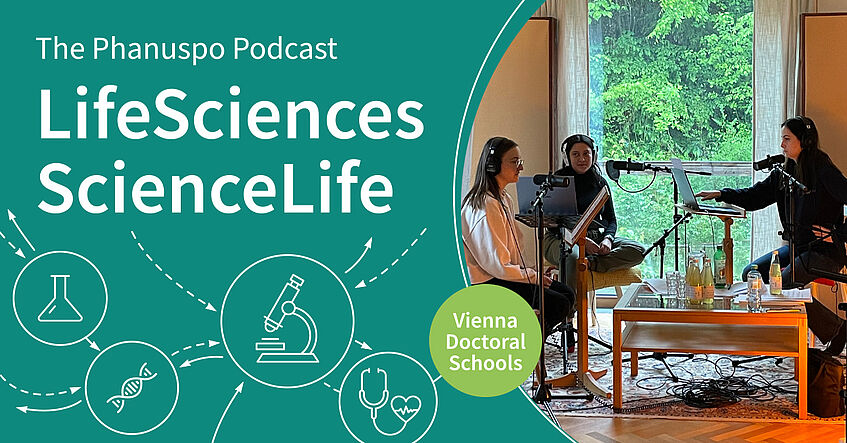
This episode was written by Johanna Sick (PhD student in Sport Science), hosted by Agnes Draxler (Alumna and early-postdoc researcher at the Department of Nutritional Sciences) and Shara Natalia Sosa Cabrera (PhD student in Pharmaceutical Sciences), edited by Simon Schenk-Mair, and produced by Andrea Cabrera (PhD student in Pharmaceutical Sciences).
In episode 2, Johanna Sick gives an insight into the field of exercise therapy and shares her personal experience of planning and running a human trial. Now in the fourth and final year of her PhD studies in Sport Science, Johanna has been involved in all the crucial steps of a scientific study and talks openly about what went wrong along the way, who supported her most and the mental health challenges she faced. Tune in to learn how exercise can be beneficial in the rehabilitation of people facing long covid-19 and why it can be helpful to talk to a therapist about your PhD journey.
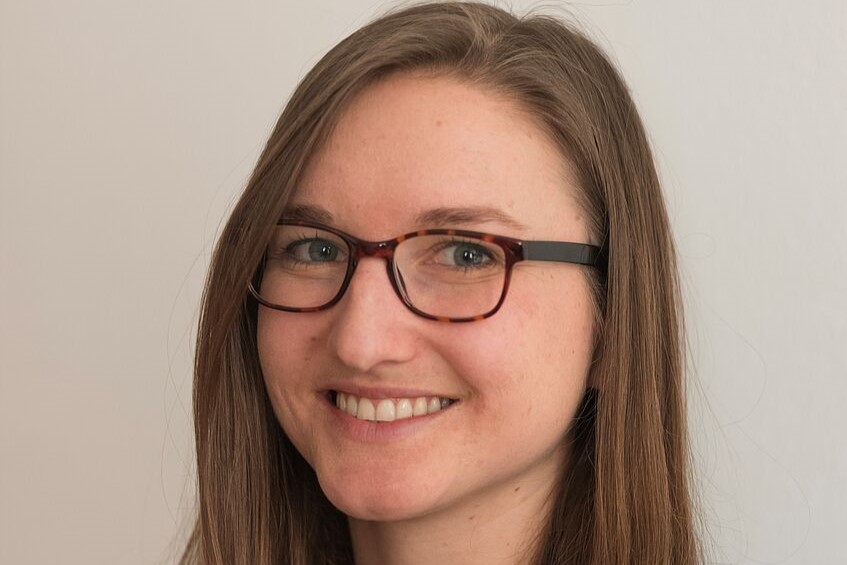
Johanna Sick
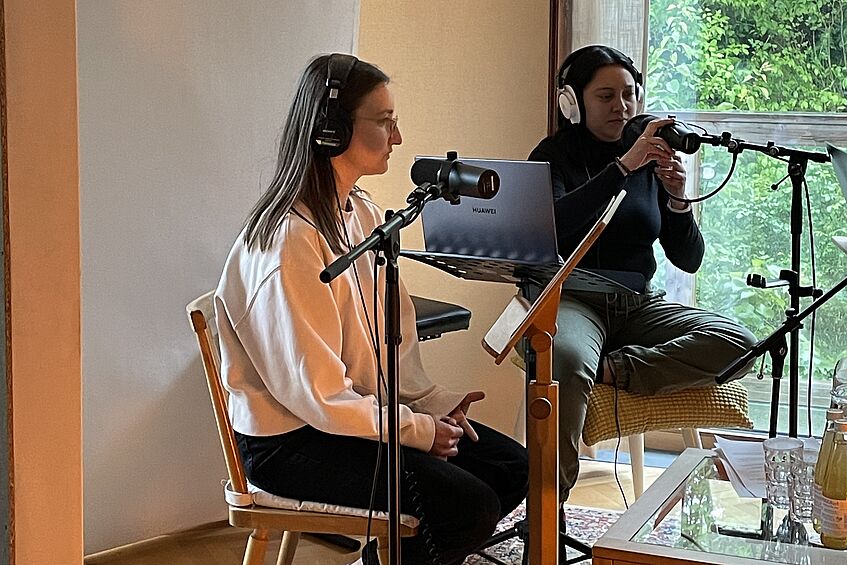
Johanna (guest) and Shara (host)
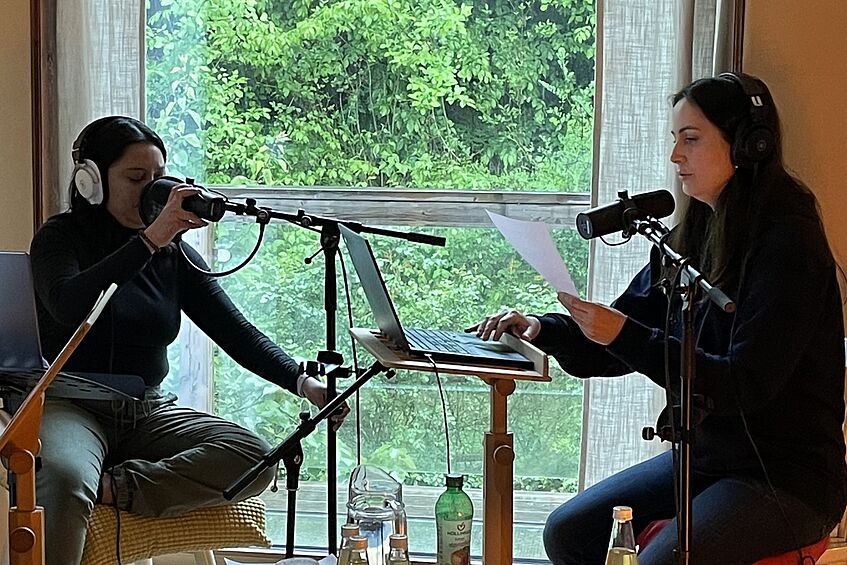
Hosts: Shara and Agnes
Episode 1 - Bioplastics
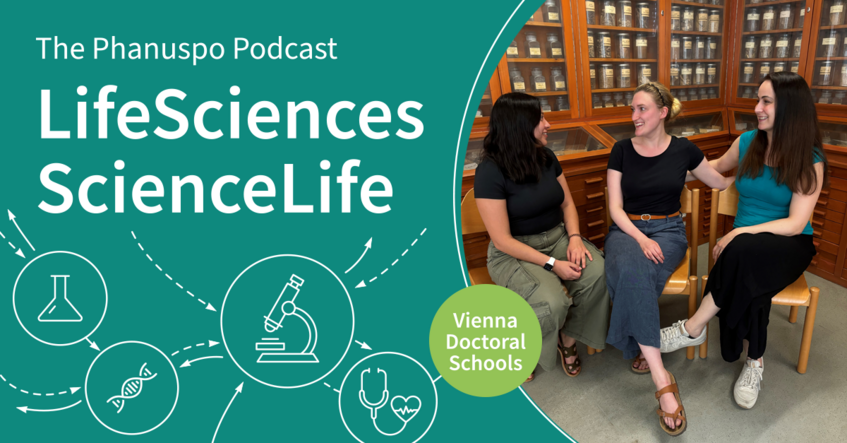
This episode was written by Sarah Stellnberger (PhD student in Pharmaceutical Sciences), hosted by Agnes Draxler (Alumna and early-postdoc researcher at the Department of Nutritional Sciences) and Shara Natalia Sosa Cabrera (PhD student in Pharmaceutical Sciences), edited by Simon Schenk-Mair, and produced by Andrea Cabrera (PhD student in Pharmaceutical Sciences).
In this episode we interviewed Sarah Stellnberger, a 2nd year PhD student, about her research project on the cellular effects of bioplastics and their implications for human health and environmental sustainability. We explore the challenges and breakthroughs in this research field, which is currently attracting significant interest, shedding light on the quest for safer, more sustainable materials. We also share how meditation played a pivotal role in helping Sarah maintain focus and balance throughout her PhD journey. Tune in to learn about the fascinating world of bioplastic research and discover practical tips for integrating meditation into your own academic and professional life.
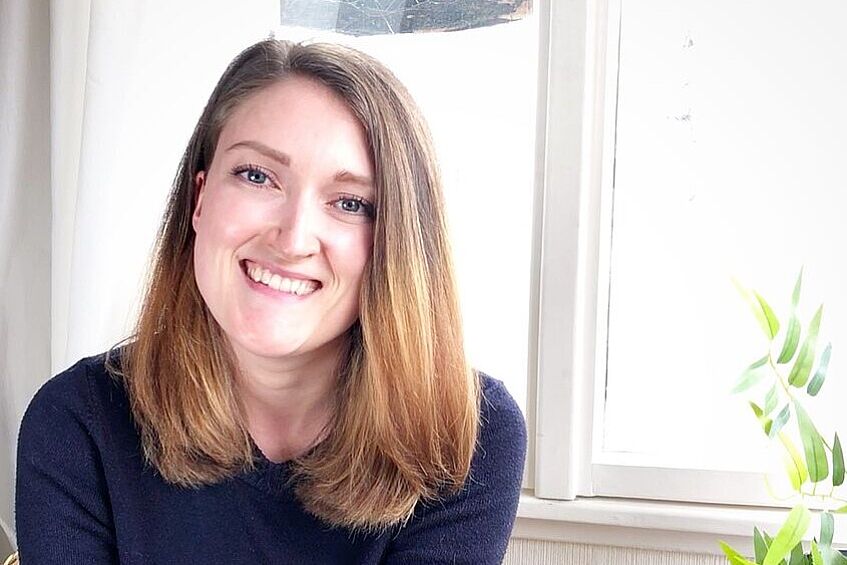
Sarah Stellnberger
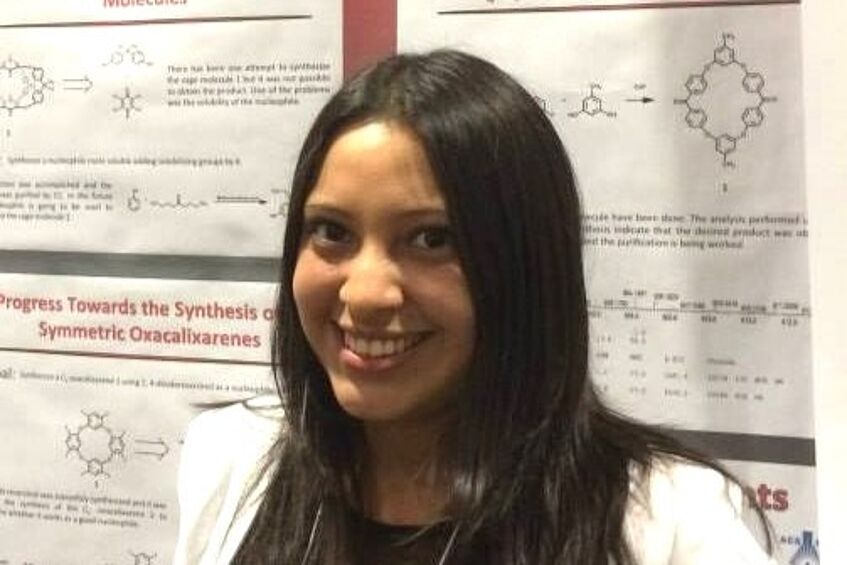
Shara Natalia Sosa Cabrera
Teaser
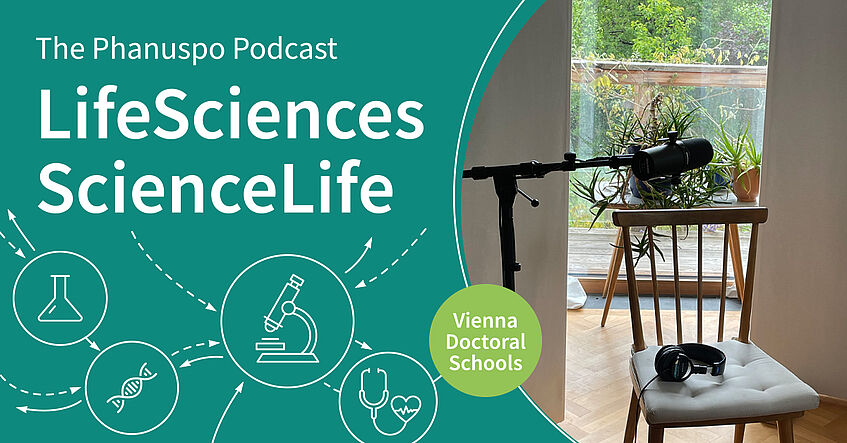
We are excited to share our teaser with you. Whether you're a budding researcher or just curious about the academic world, this is your chance to listen to our PhD students discussing their latest research experiences and follow them on their journey through PhD life. To make sure you don't miss any episodes, subscribe and tune in every third Thursday of the month. Our first episode on the cellular effects of bioplastics and their implications for human health is set to air on the 20th of June 2024.

